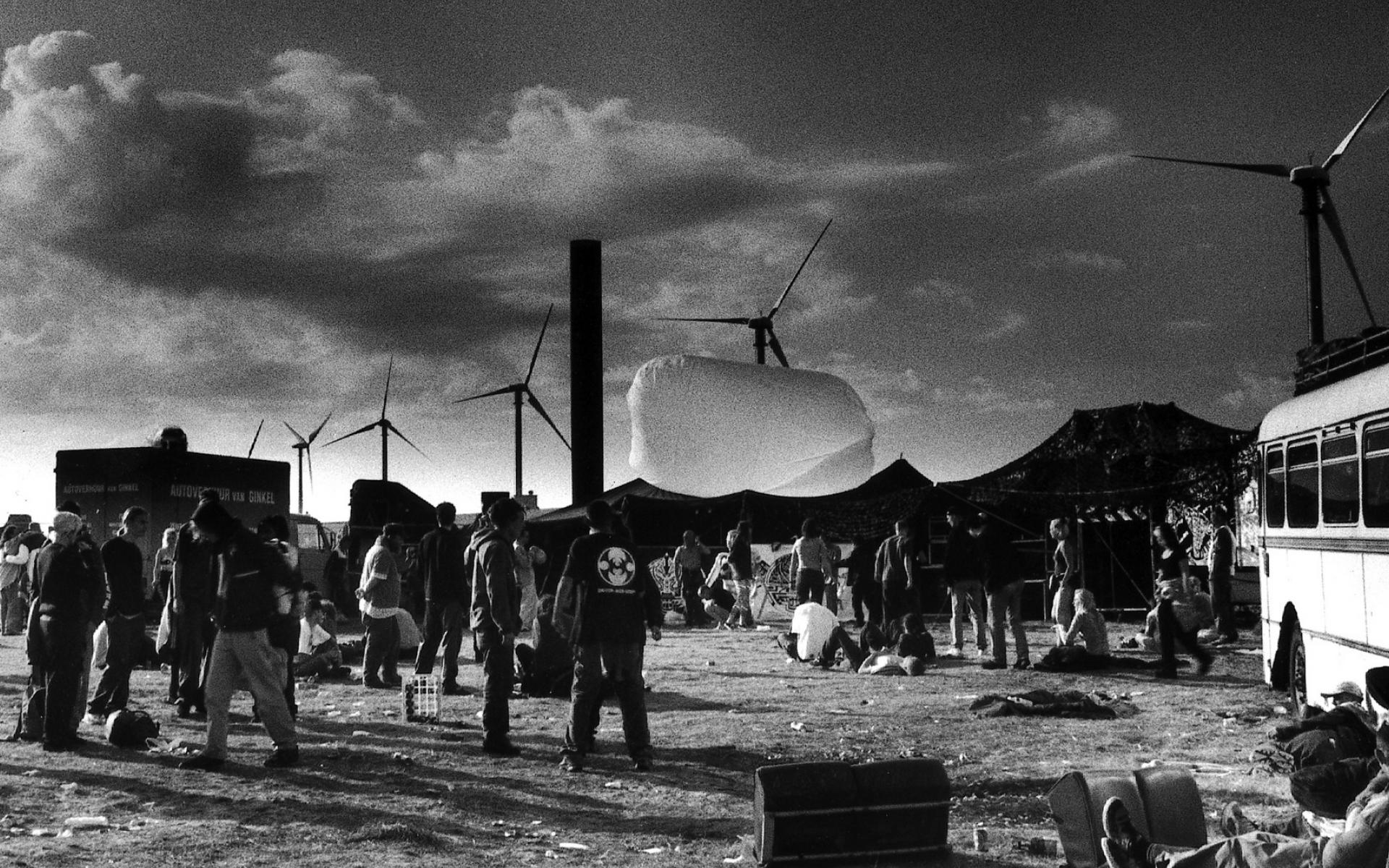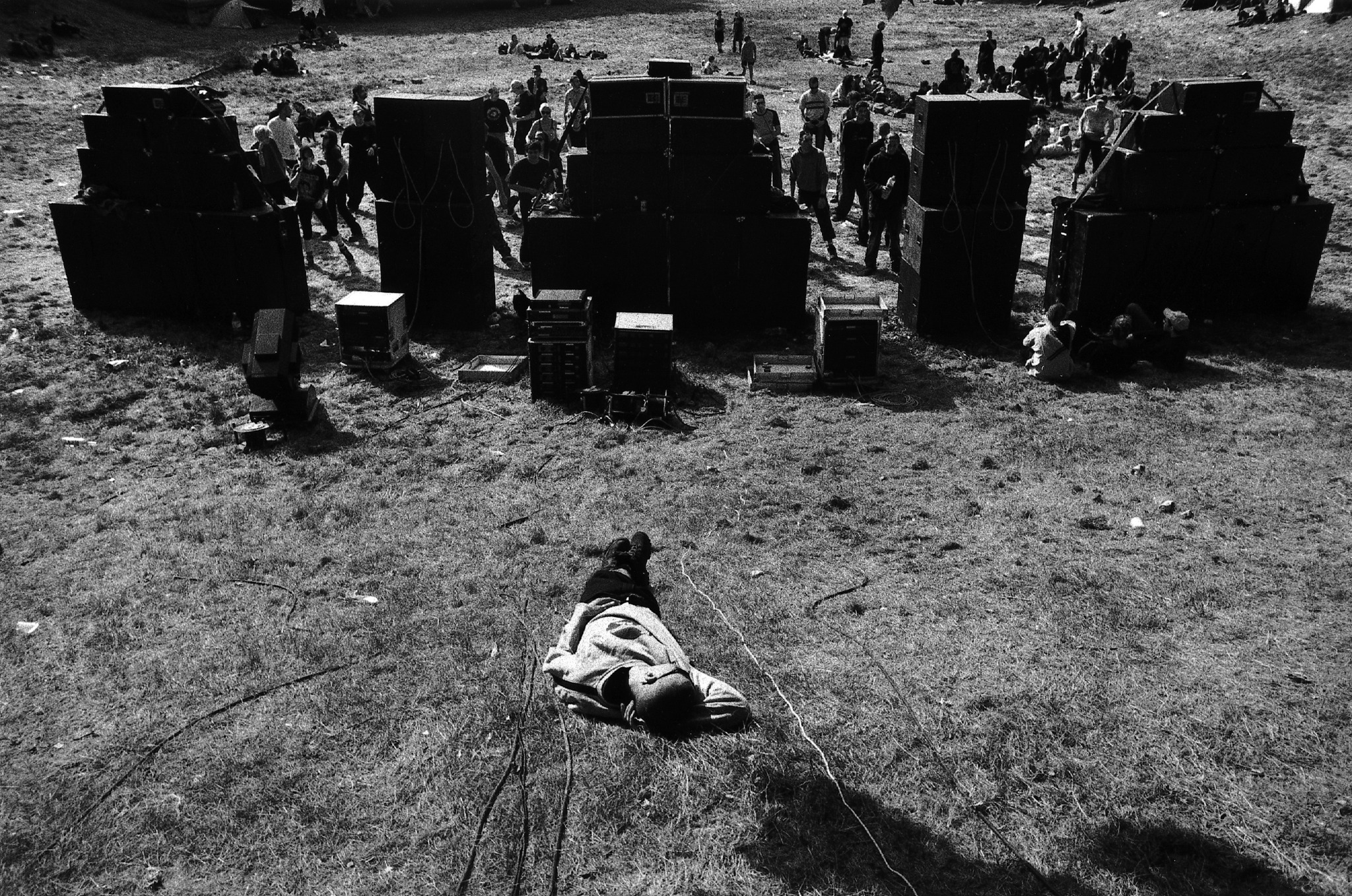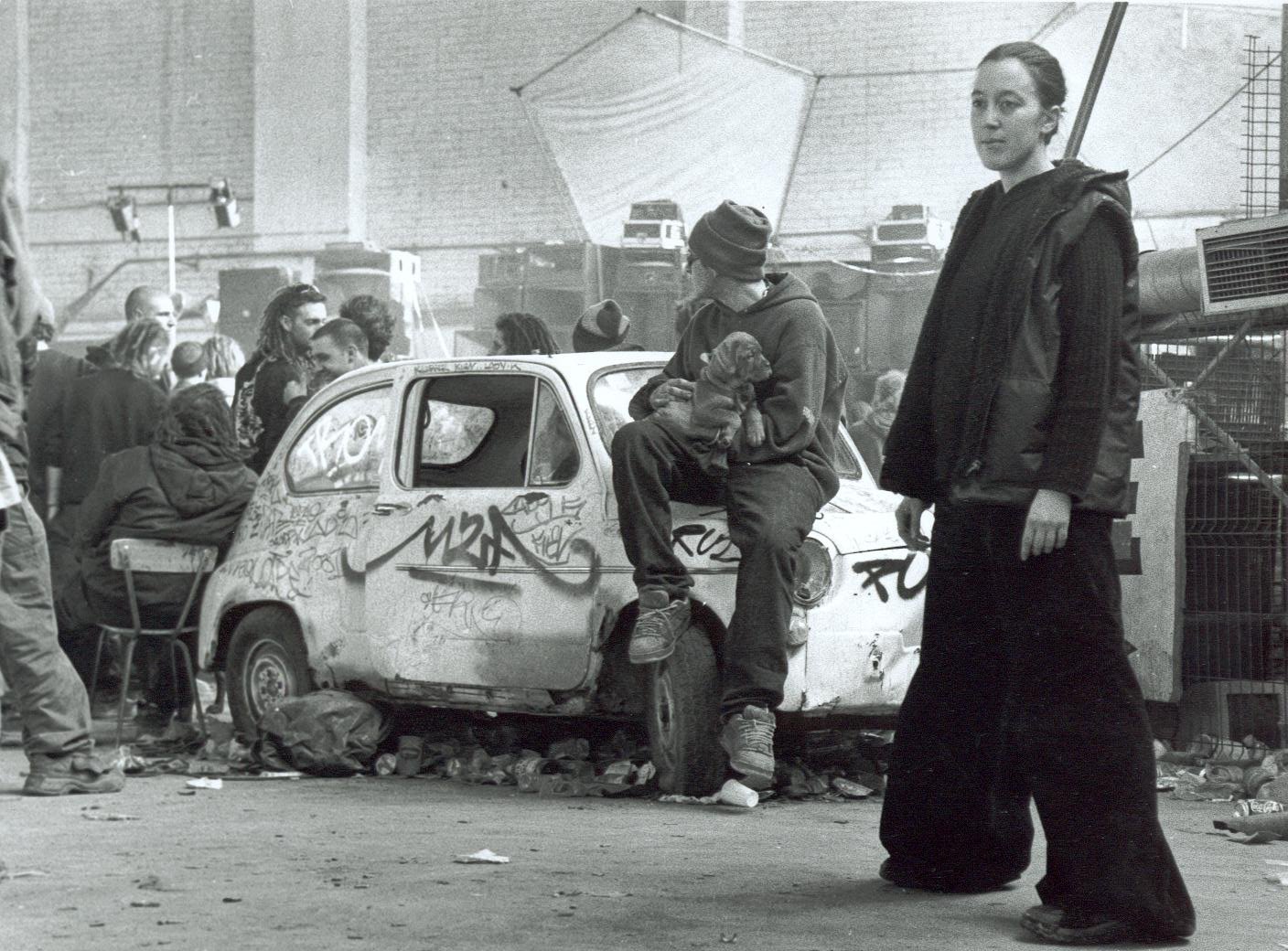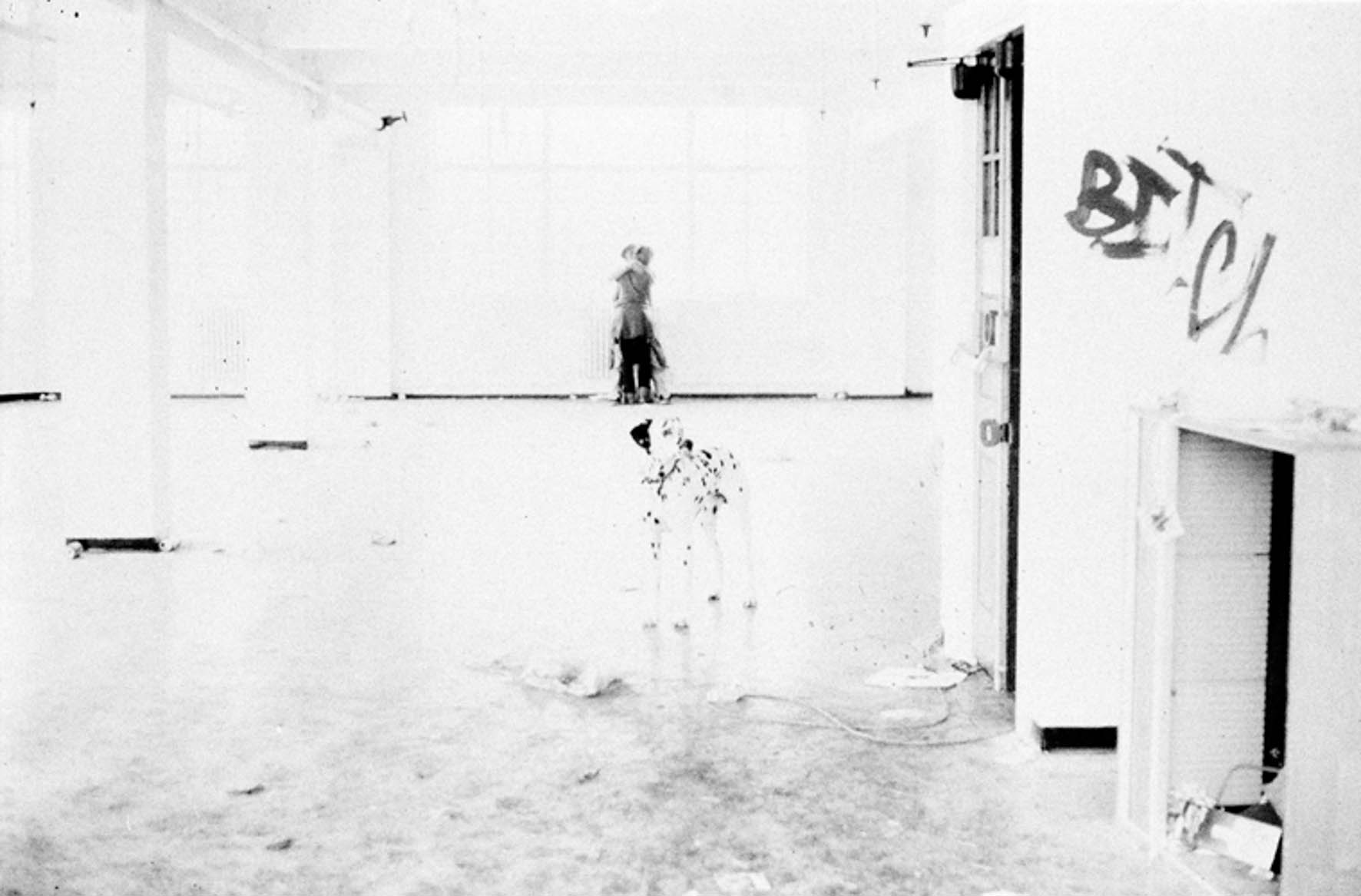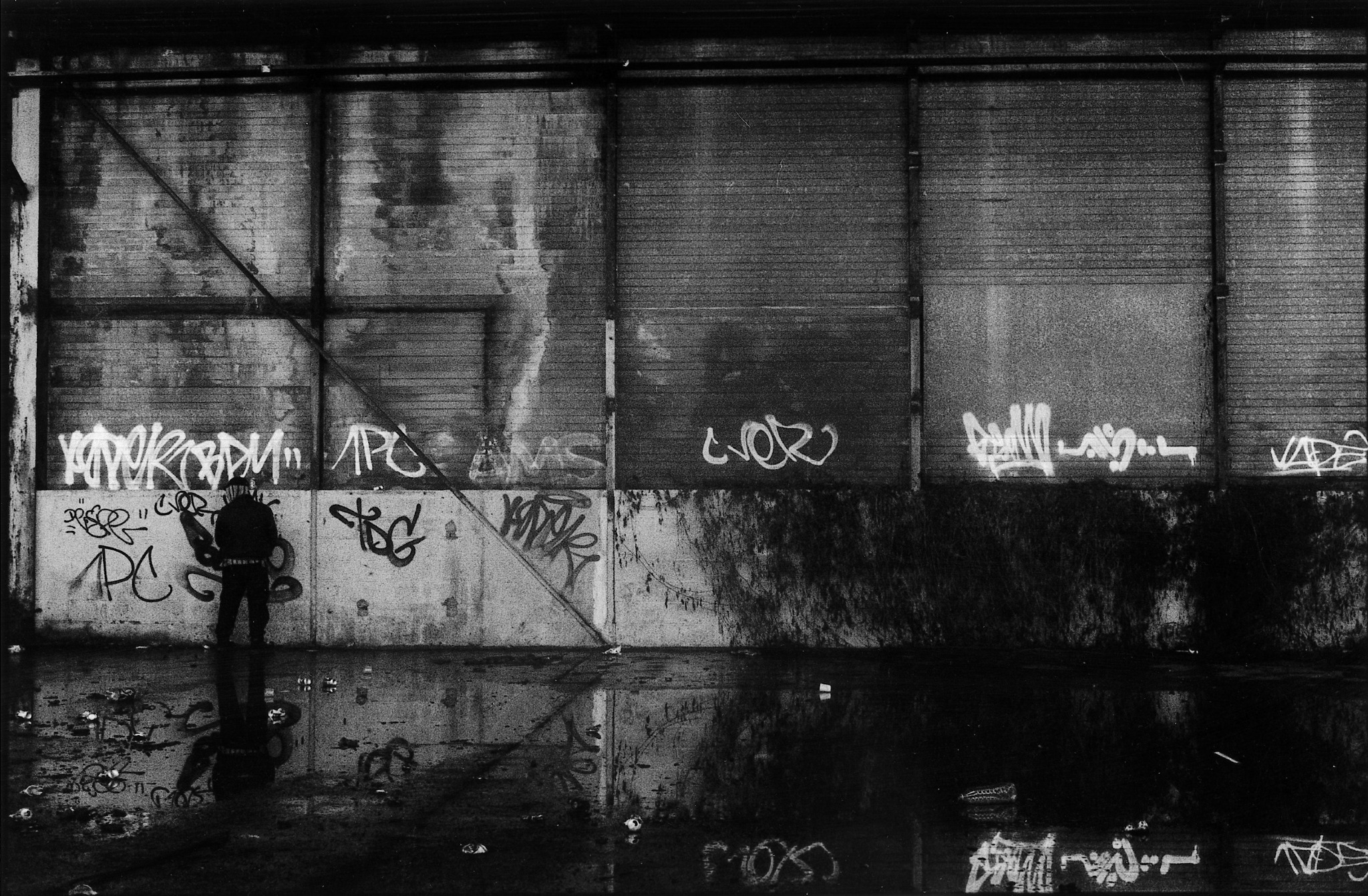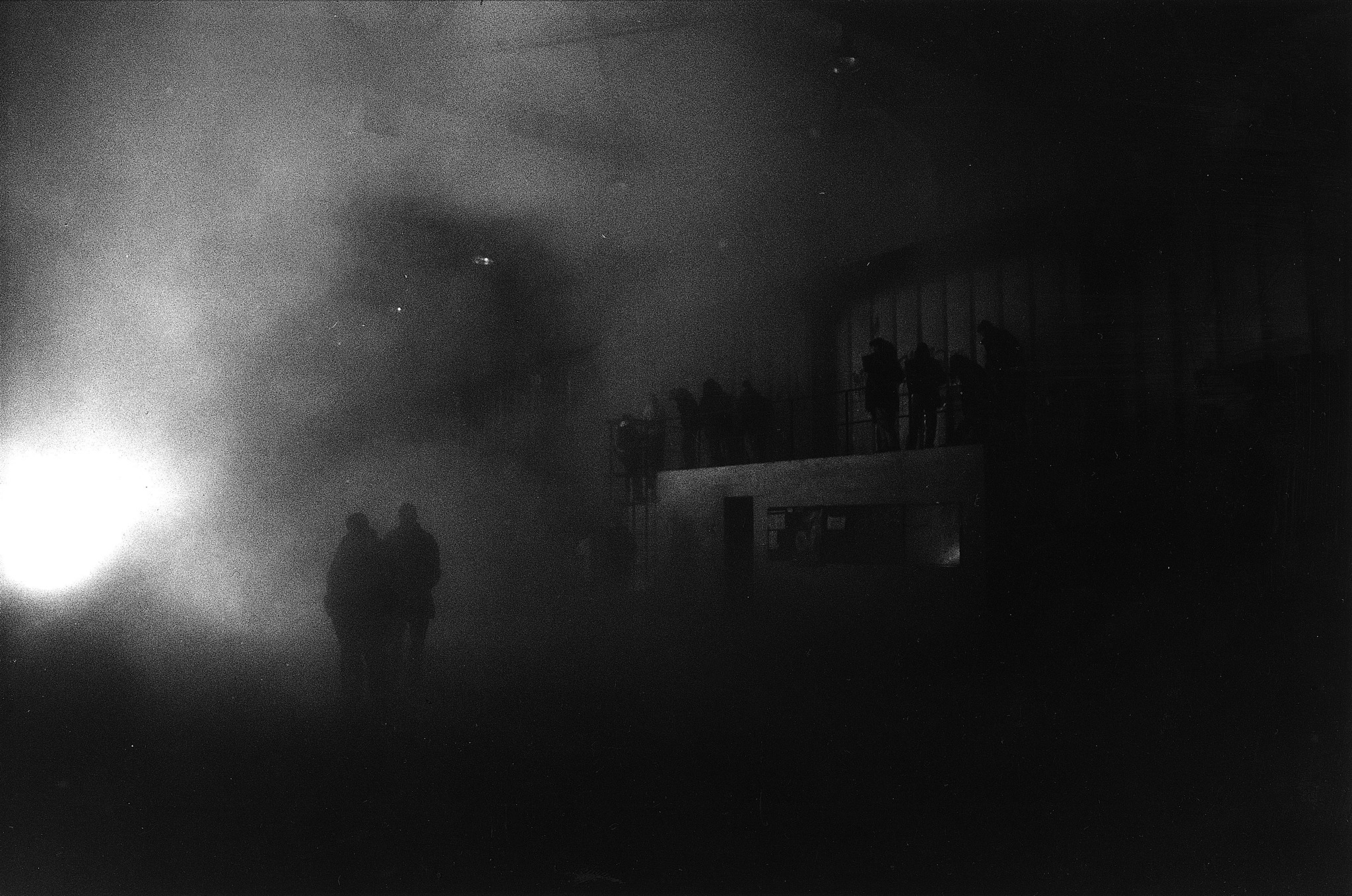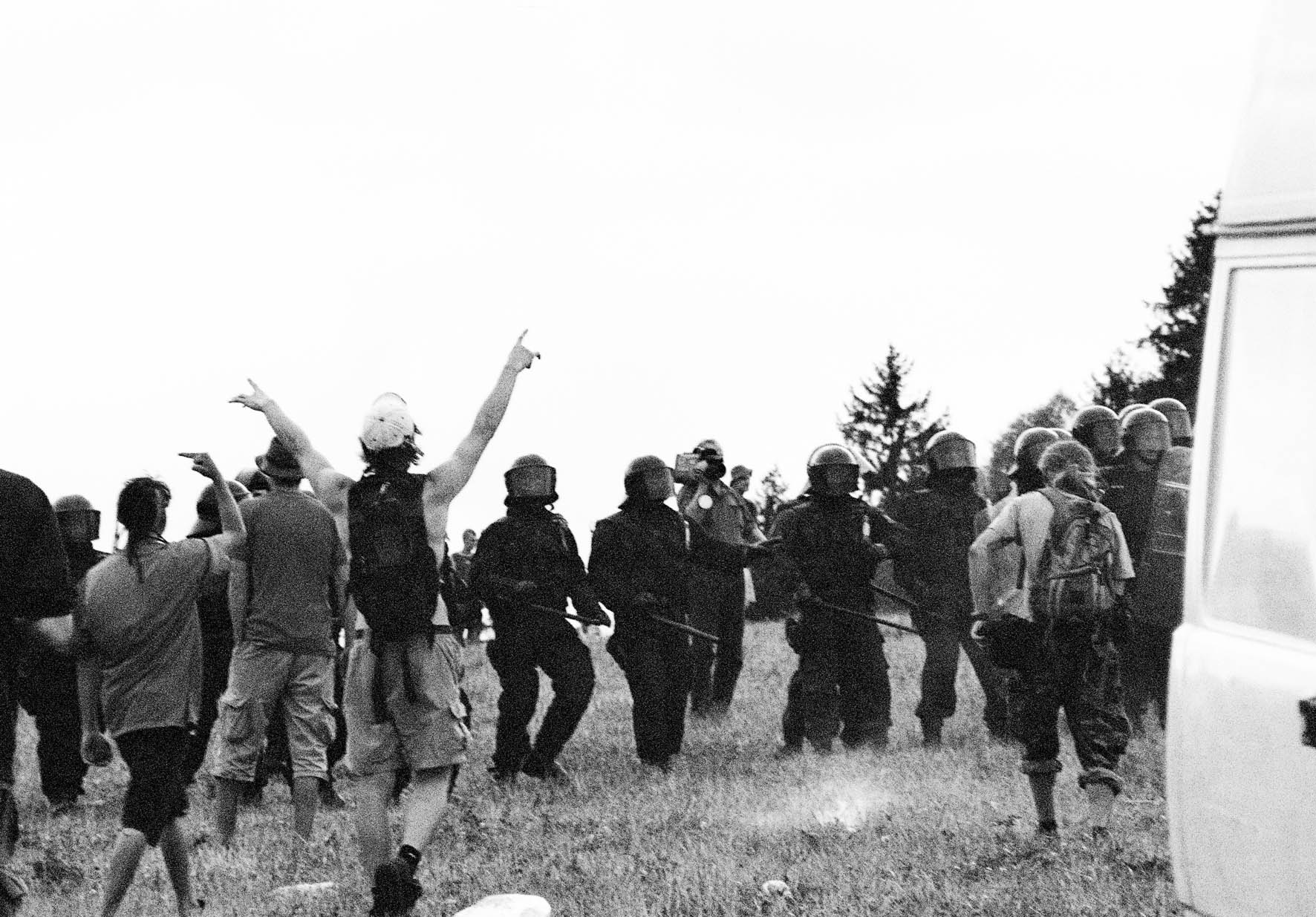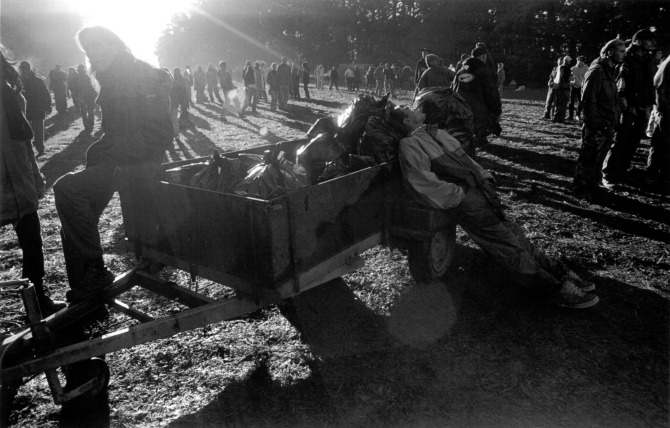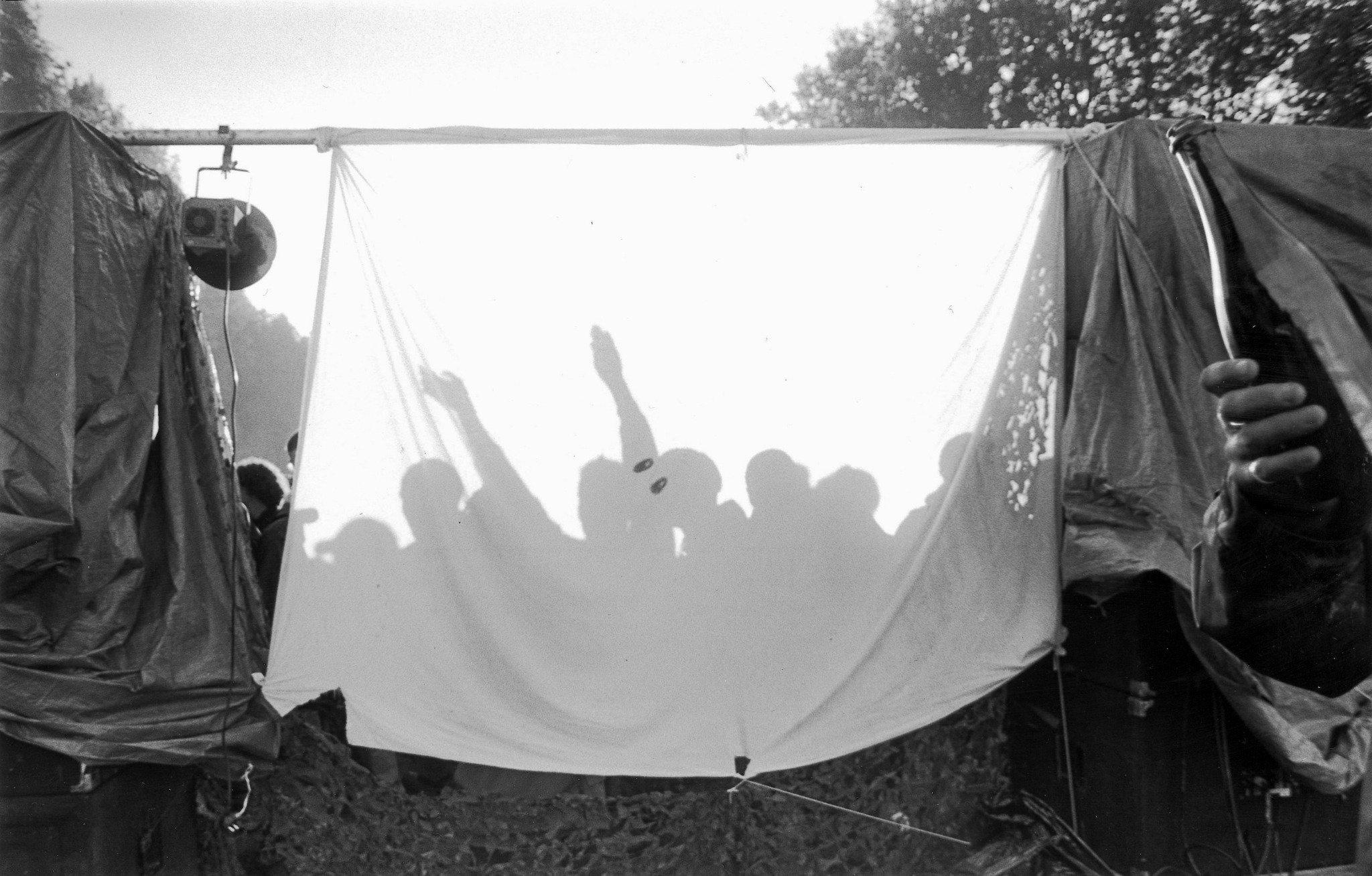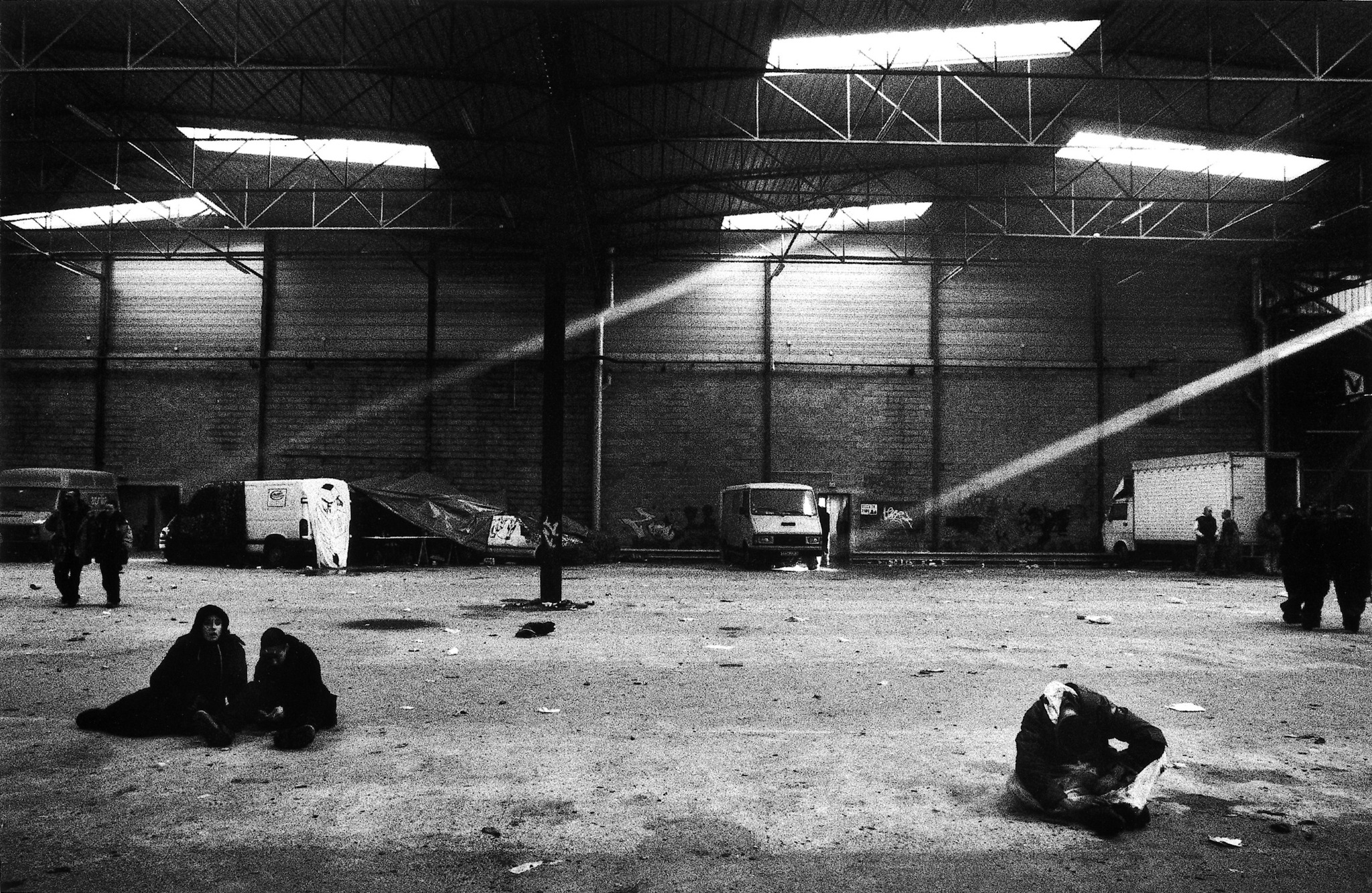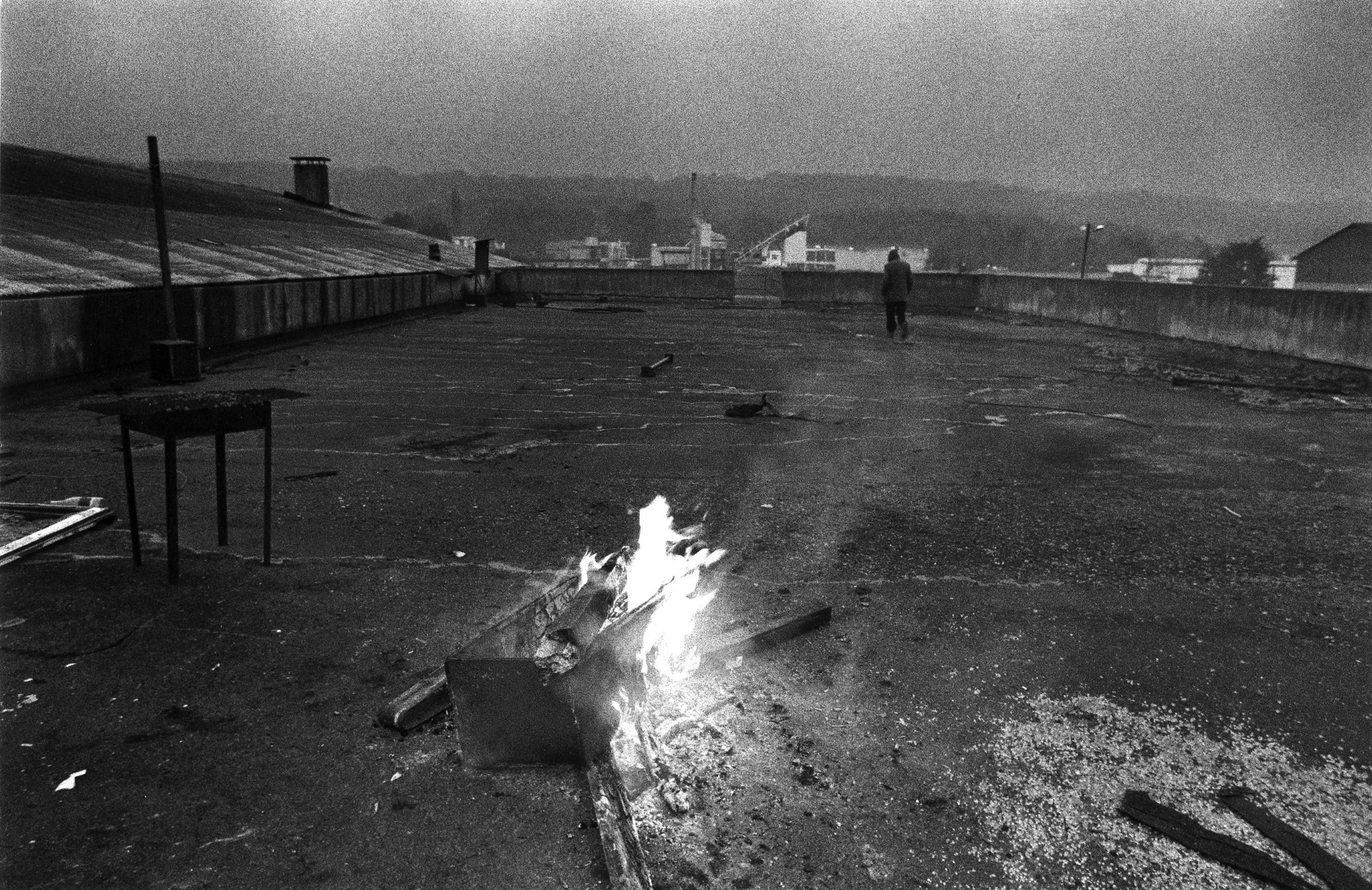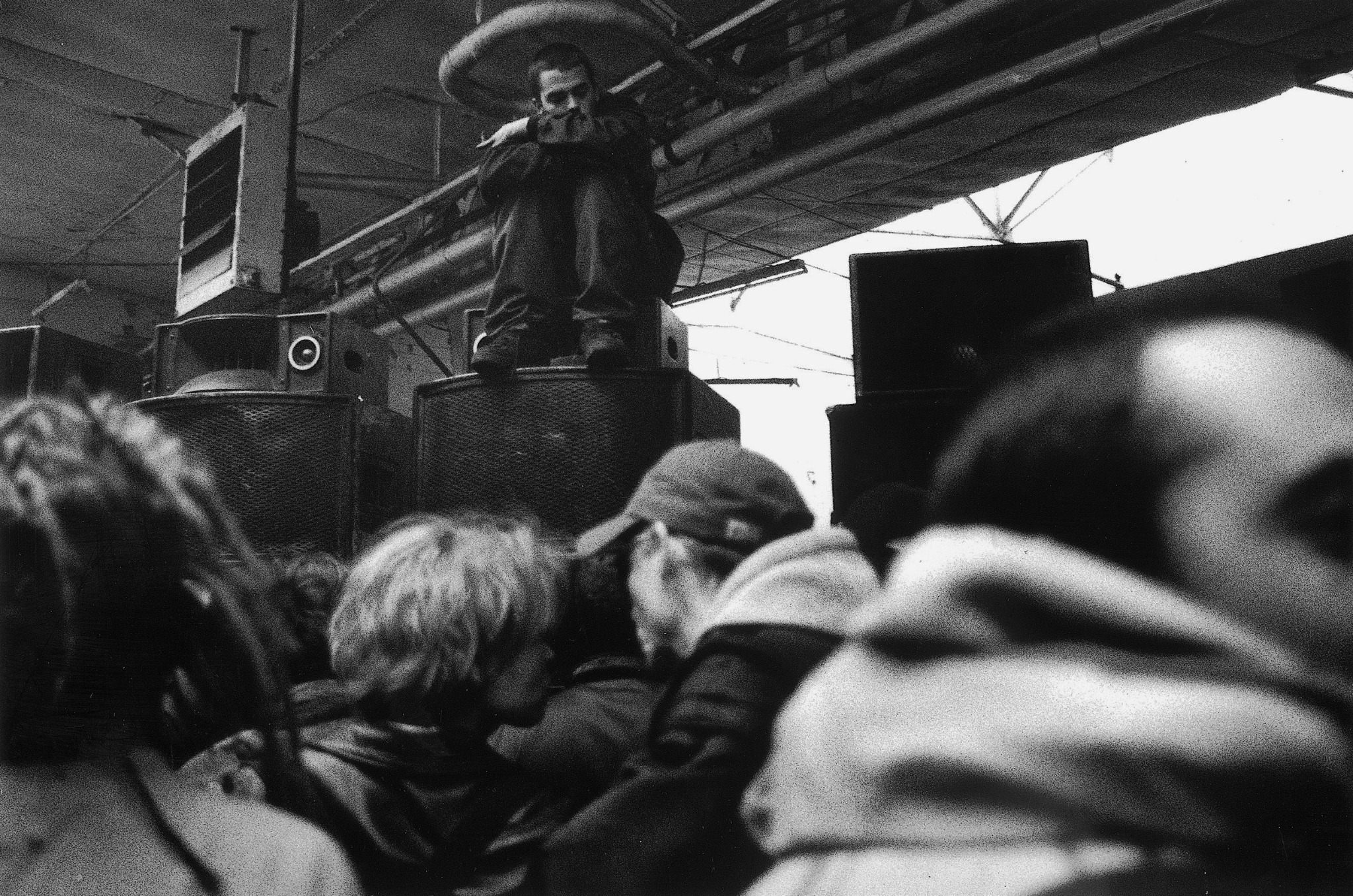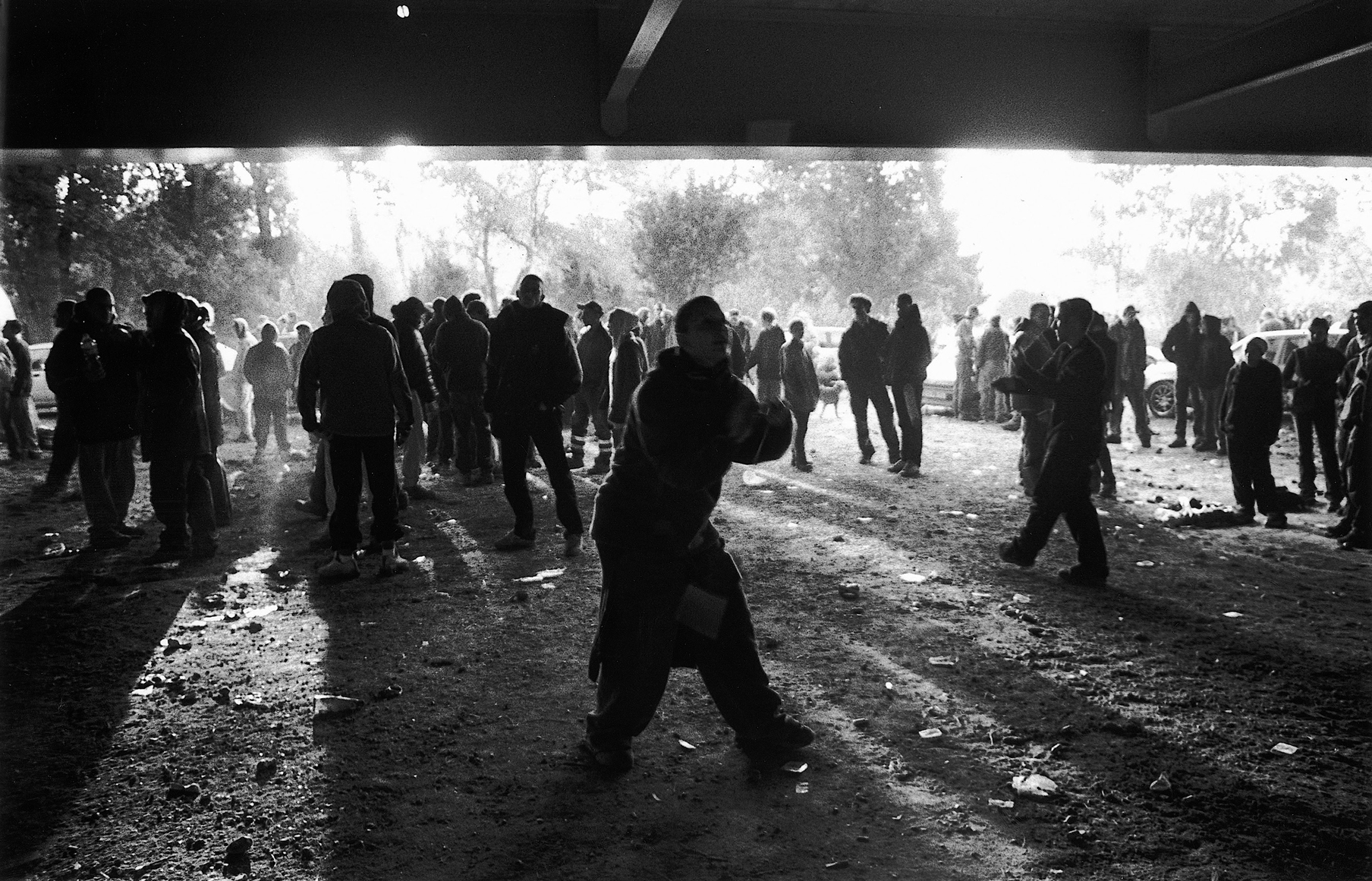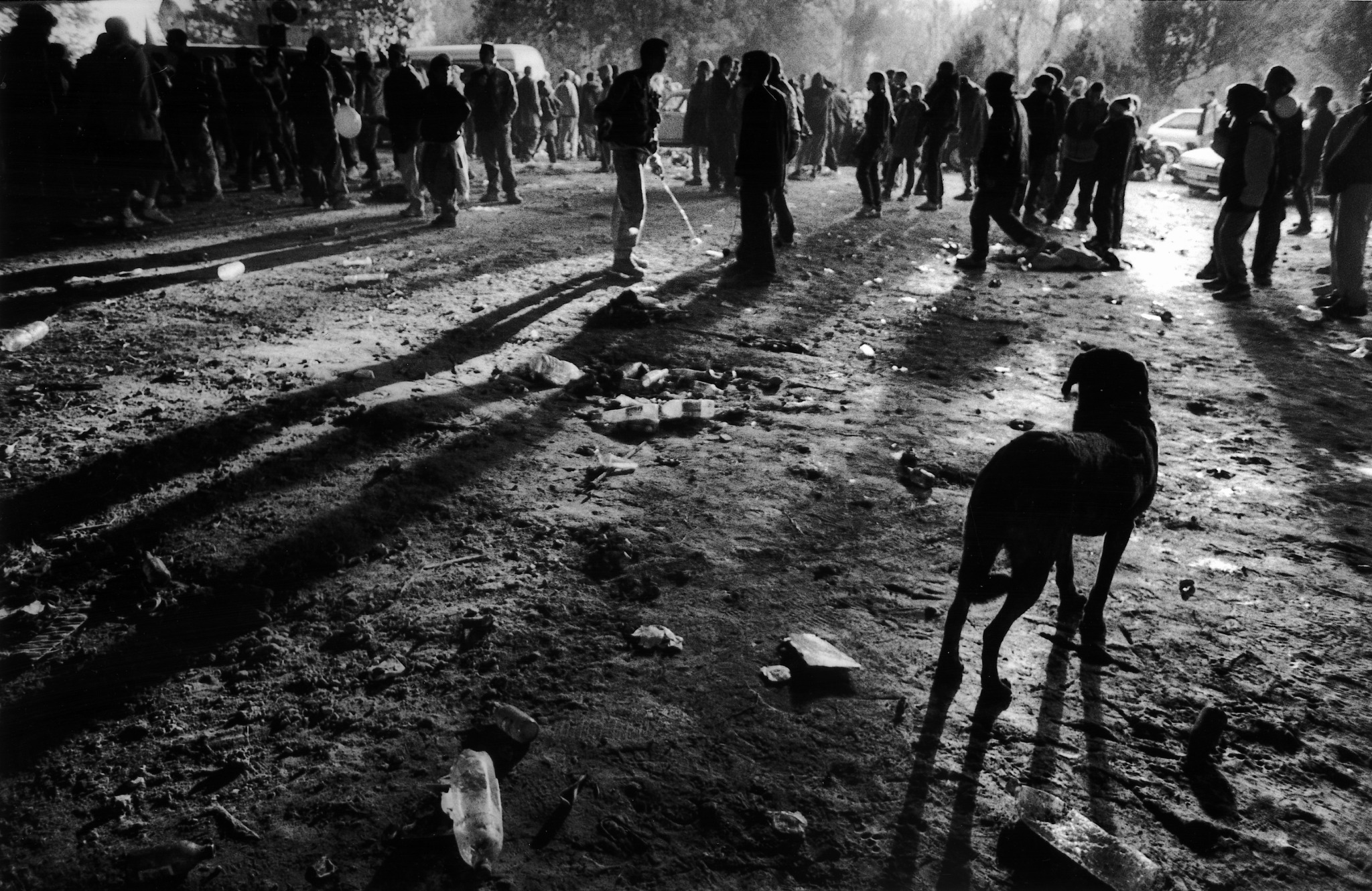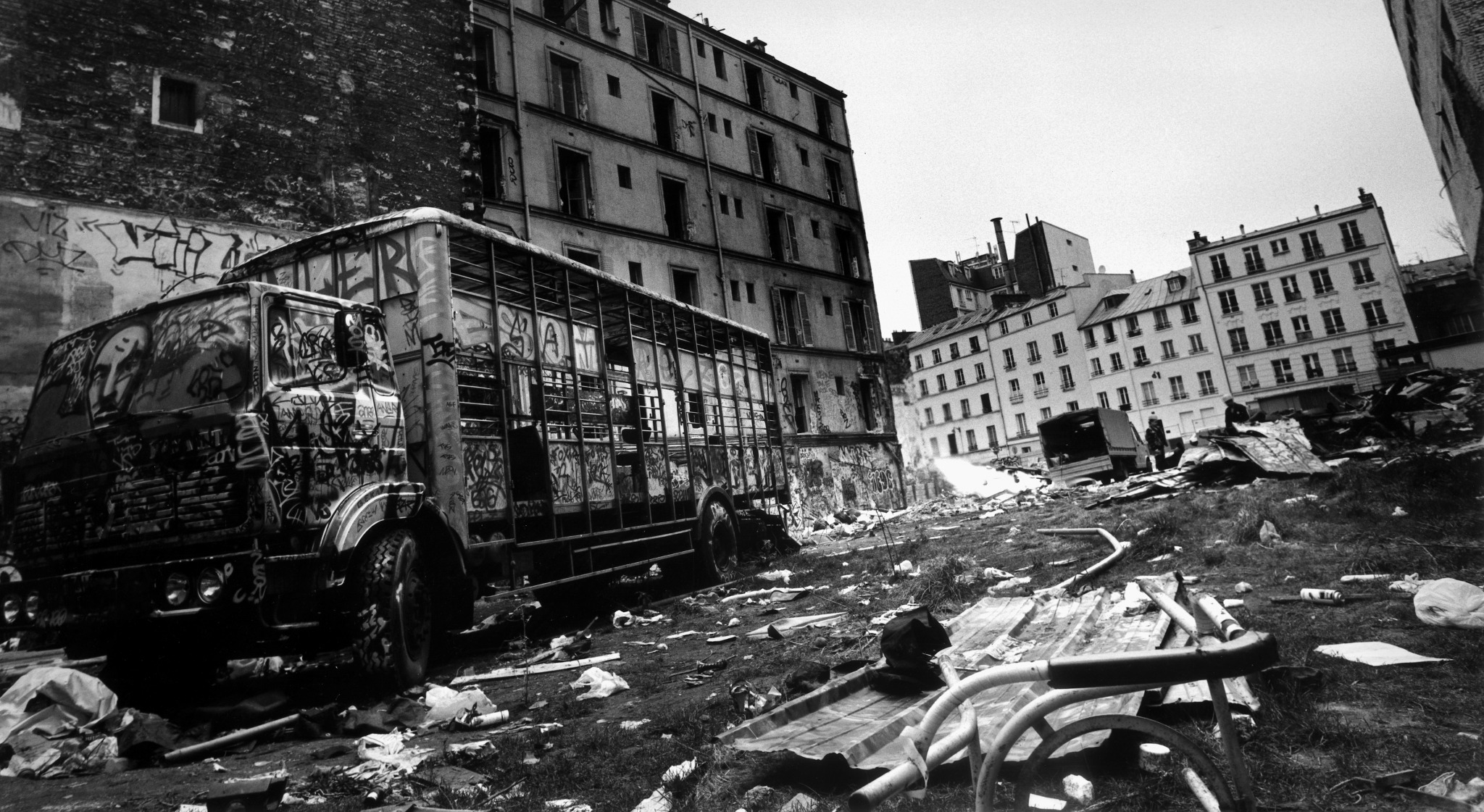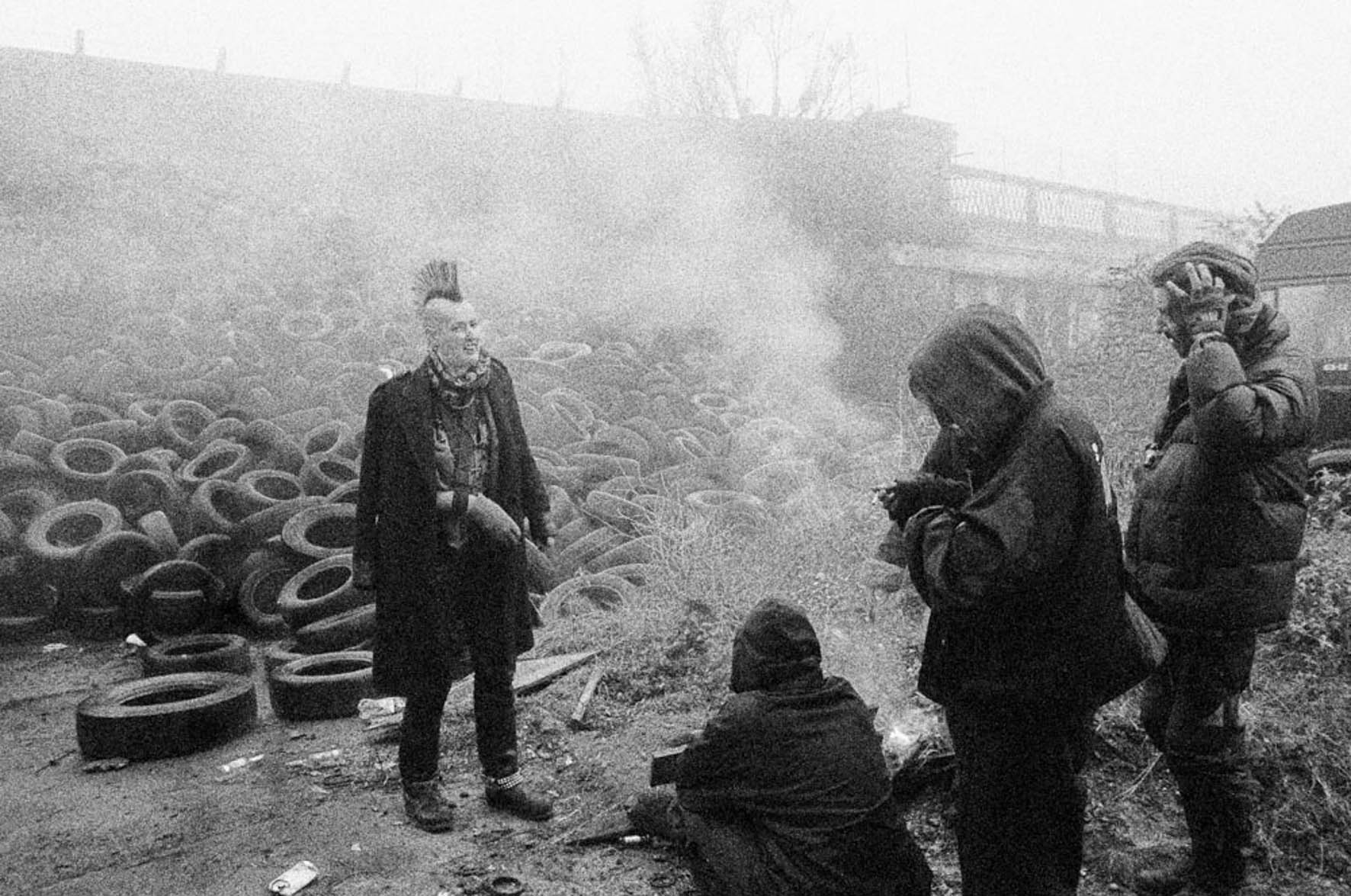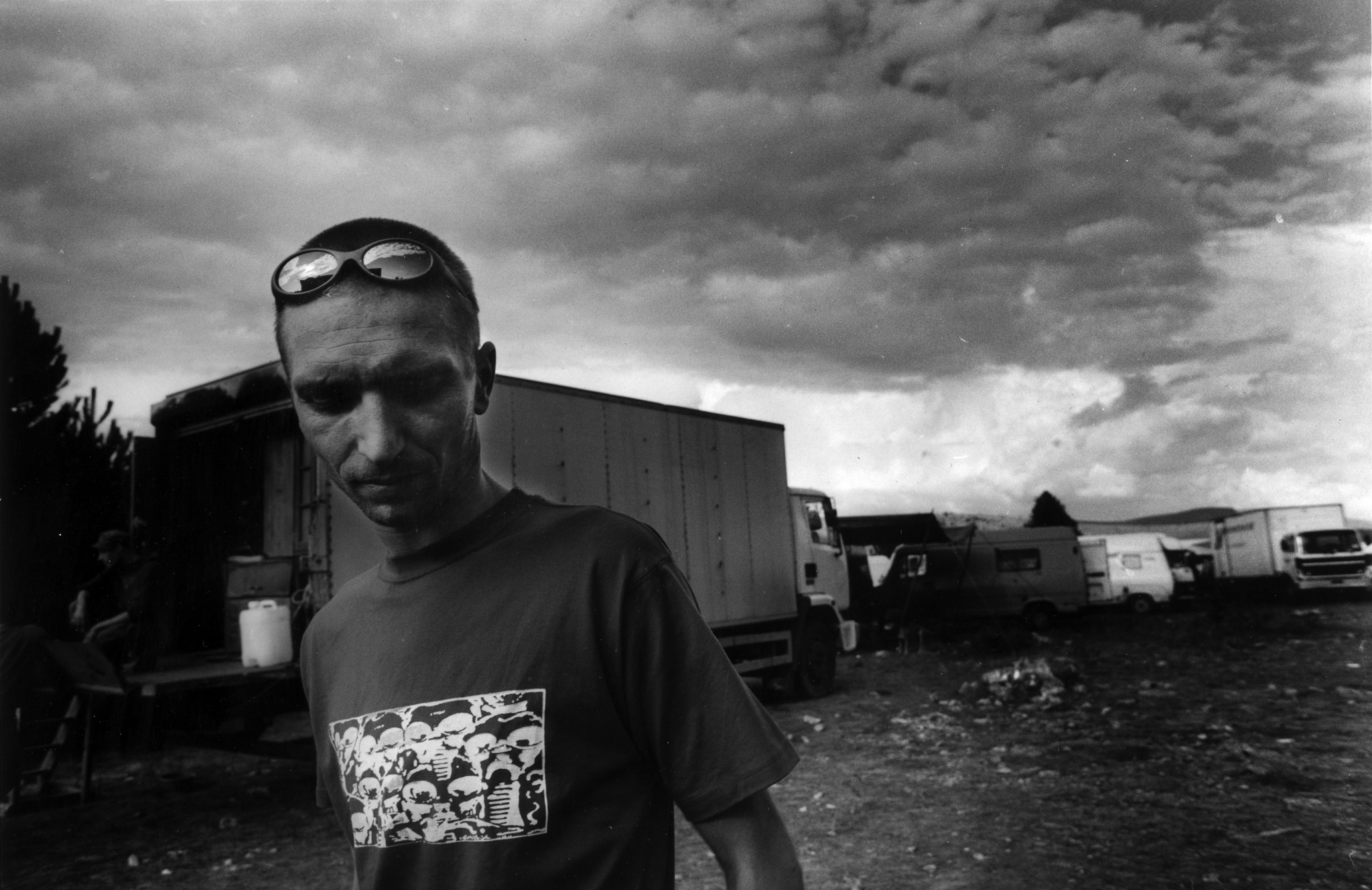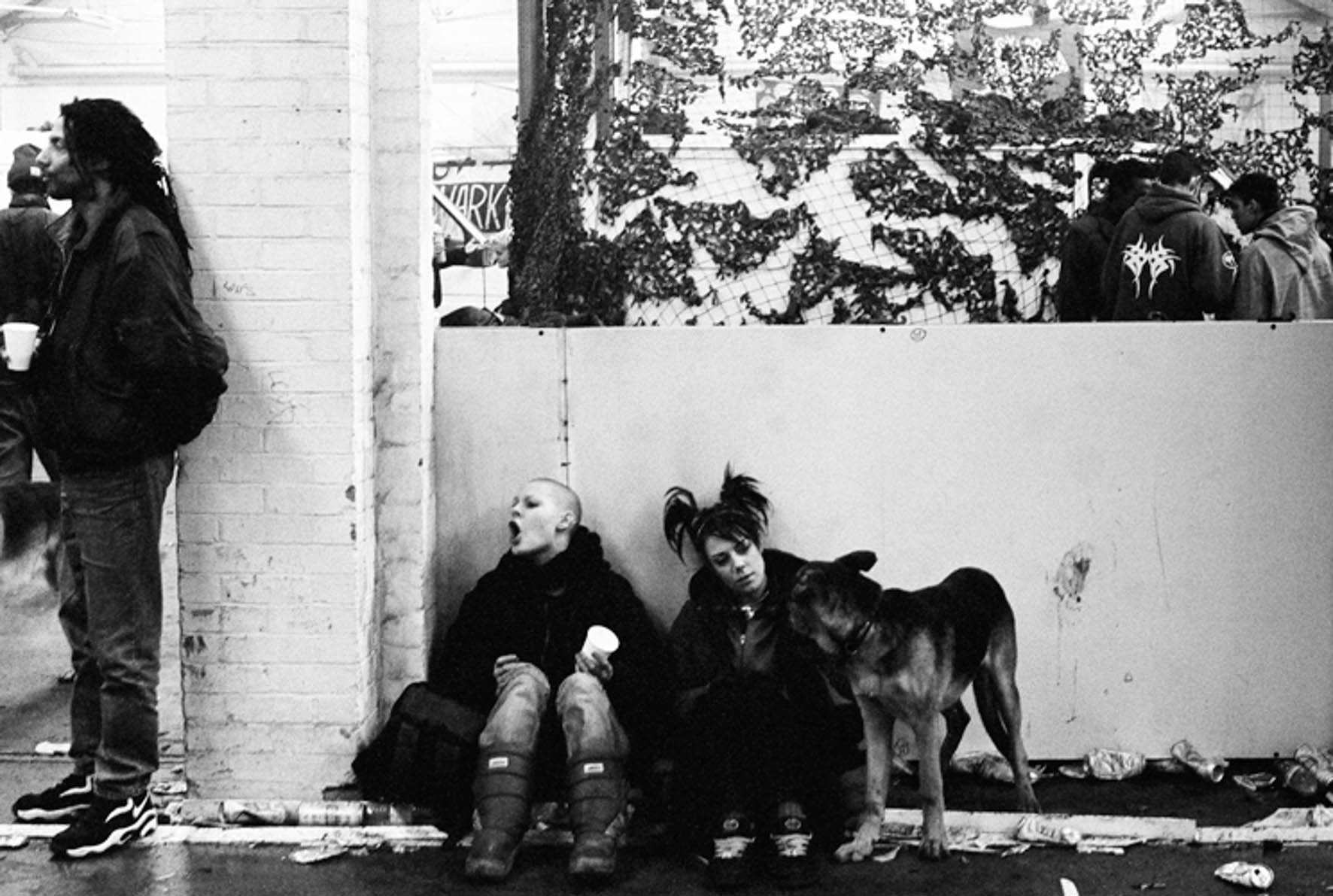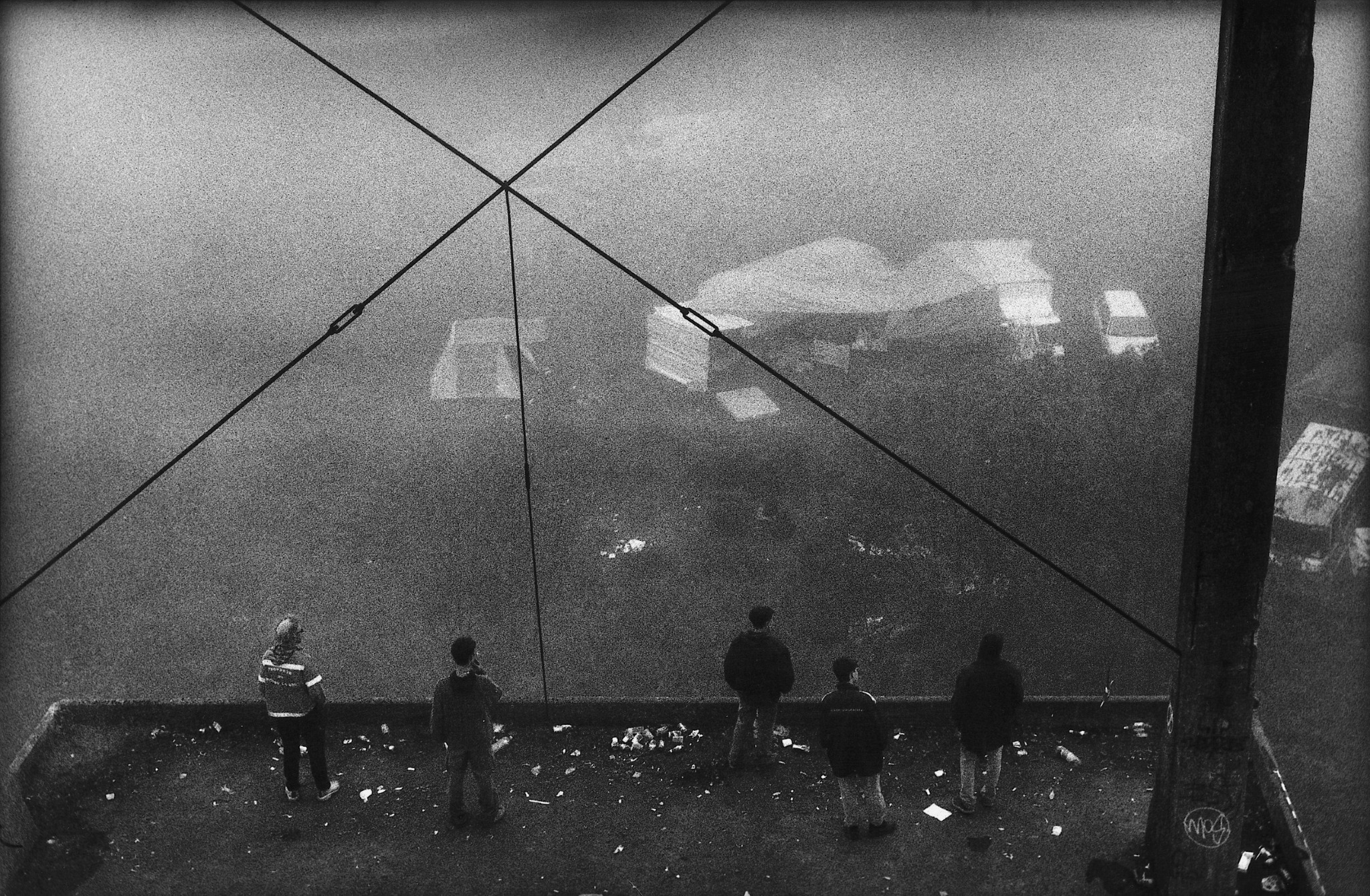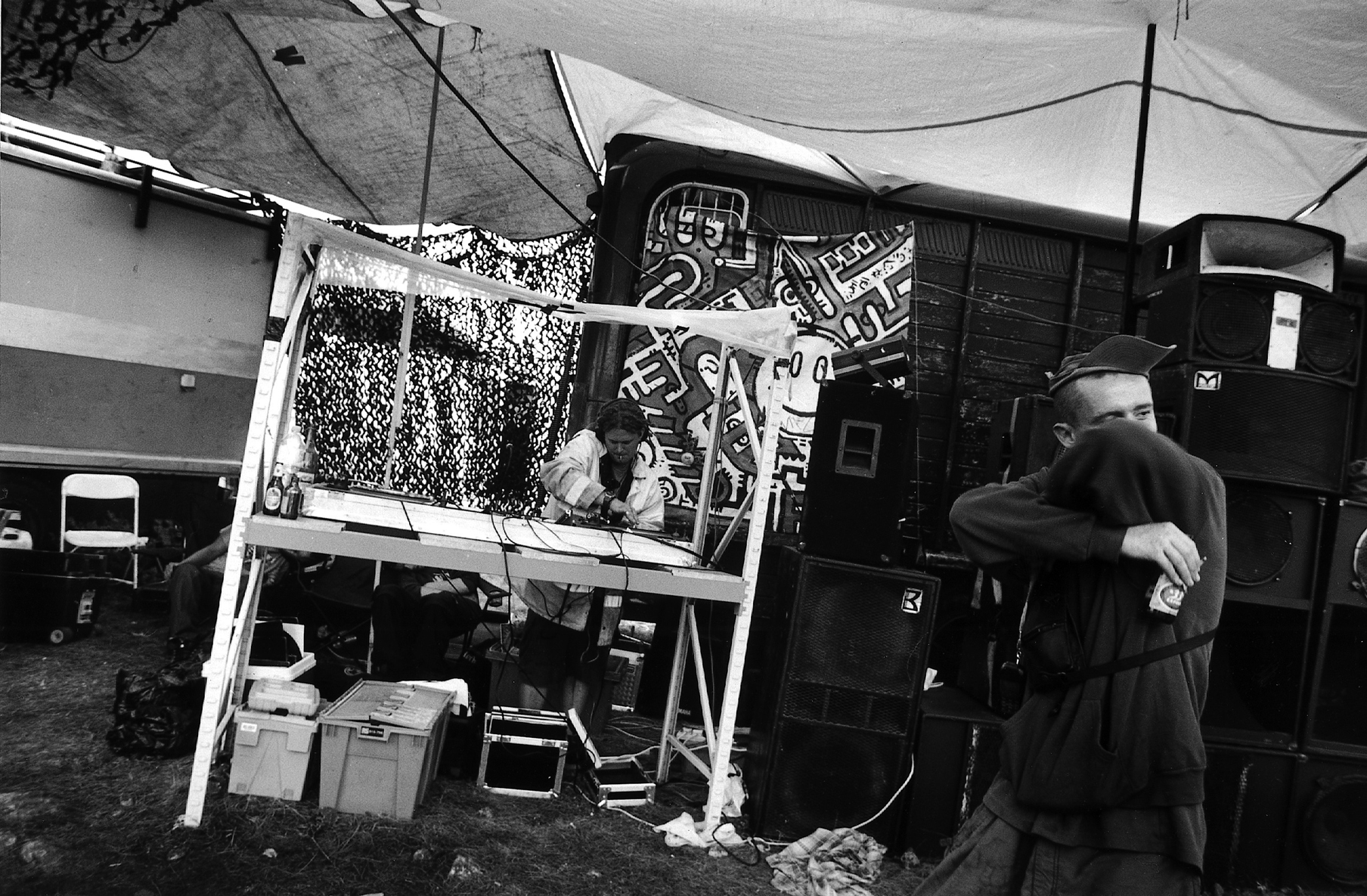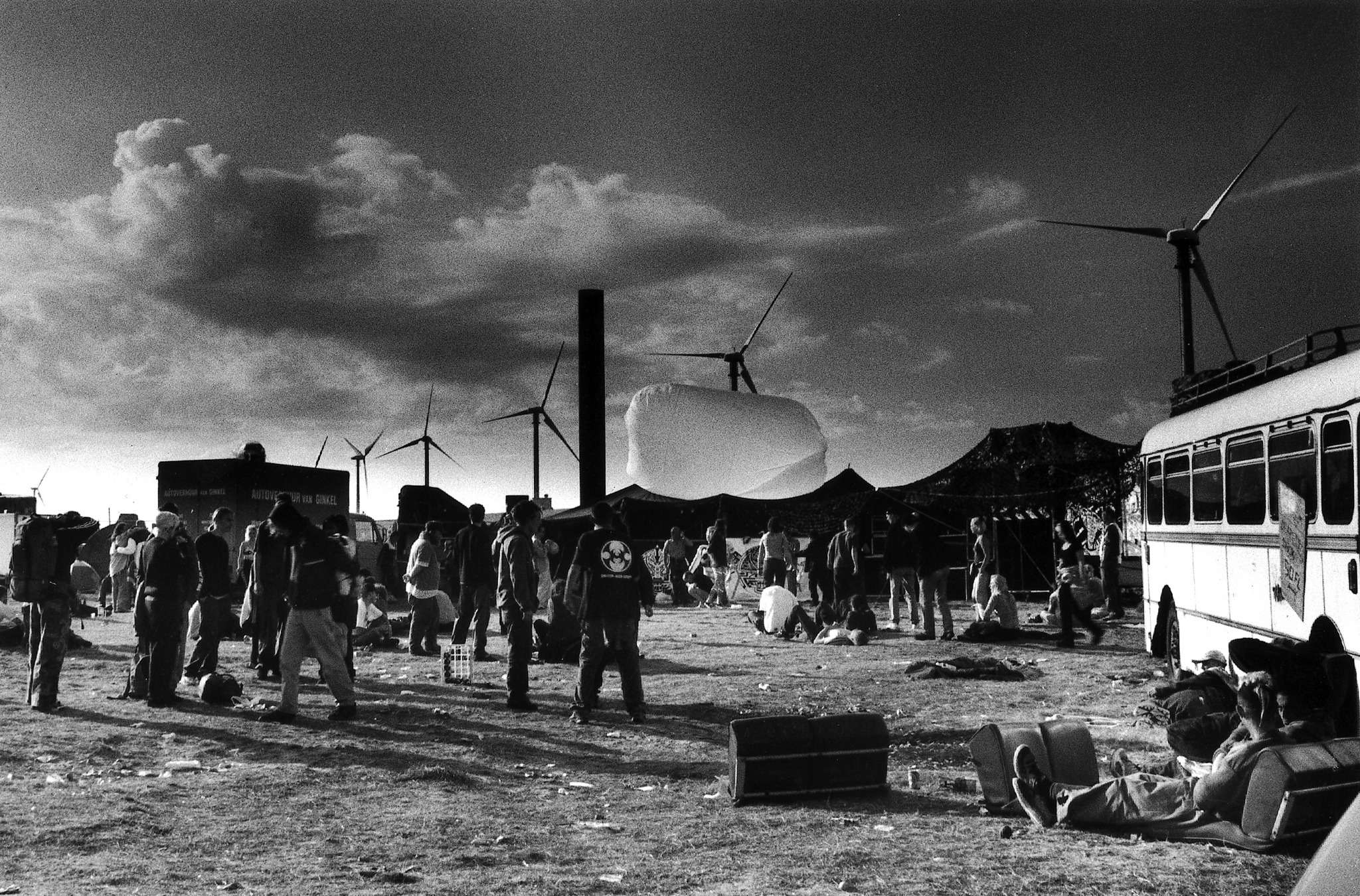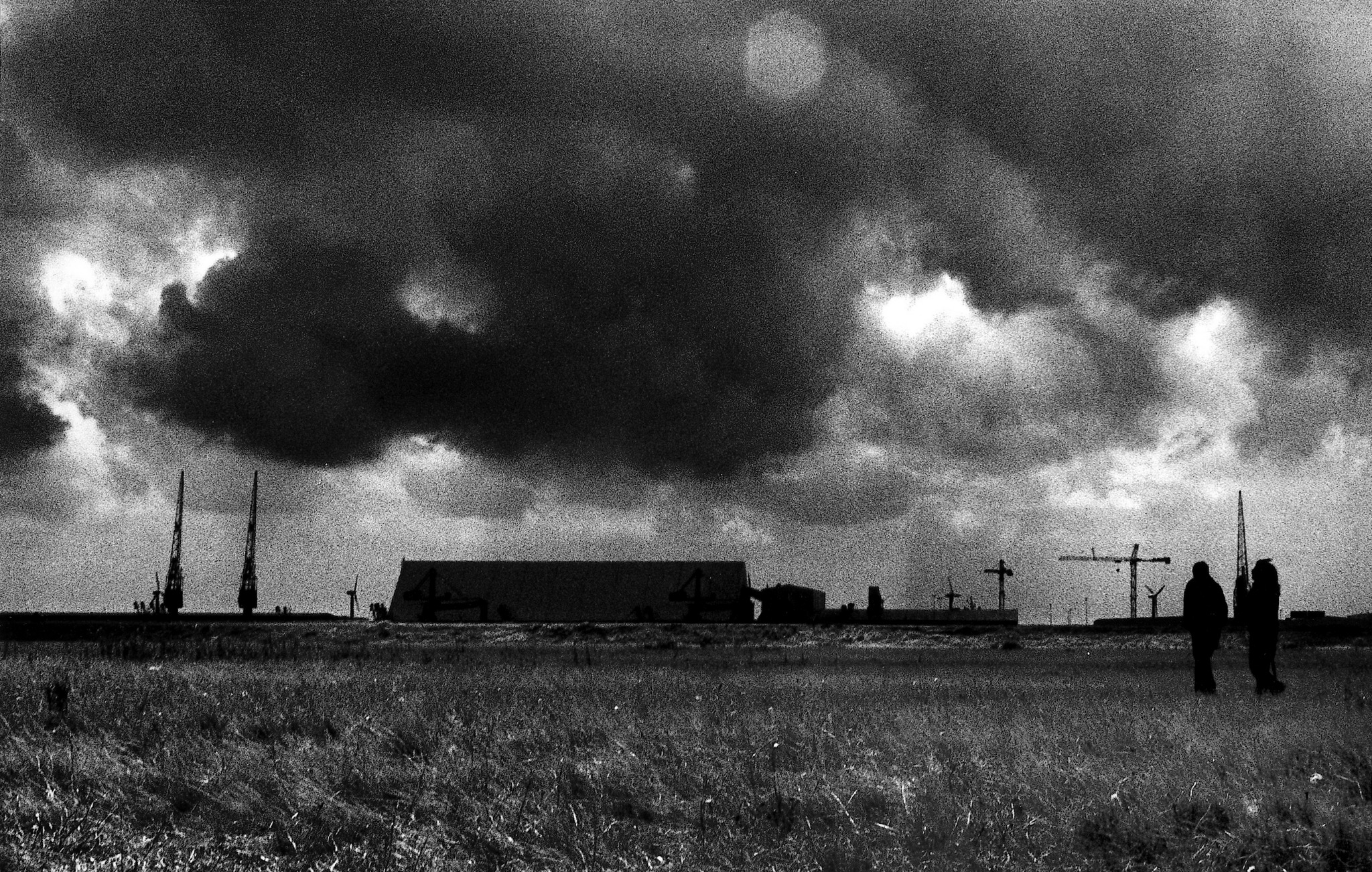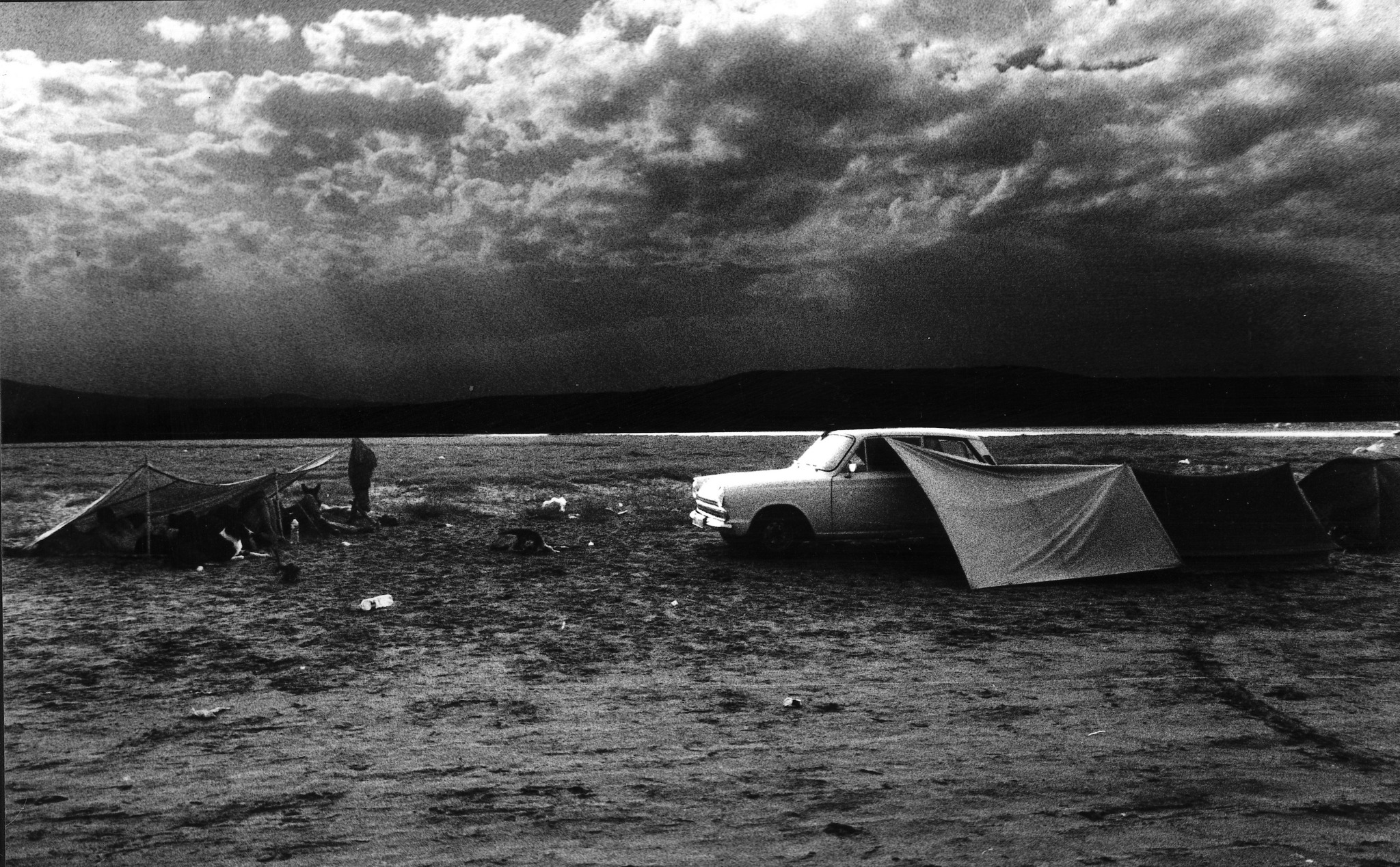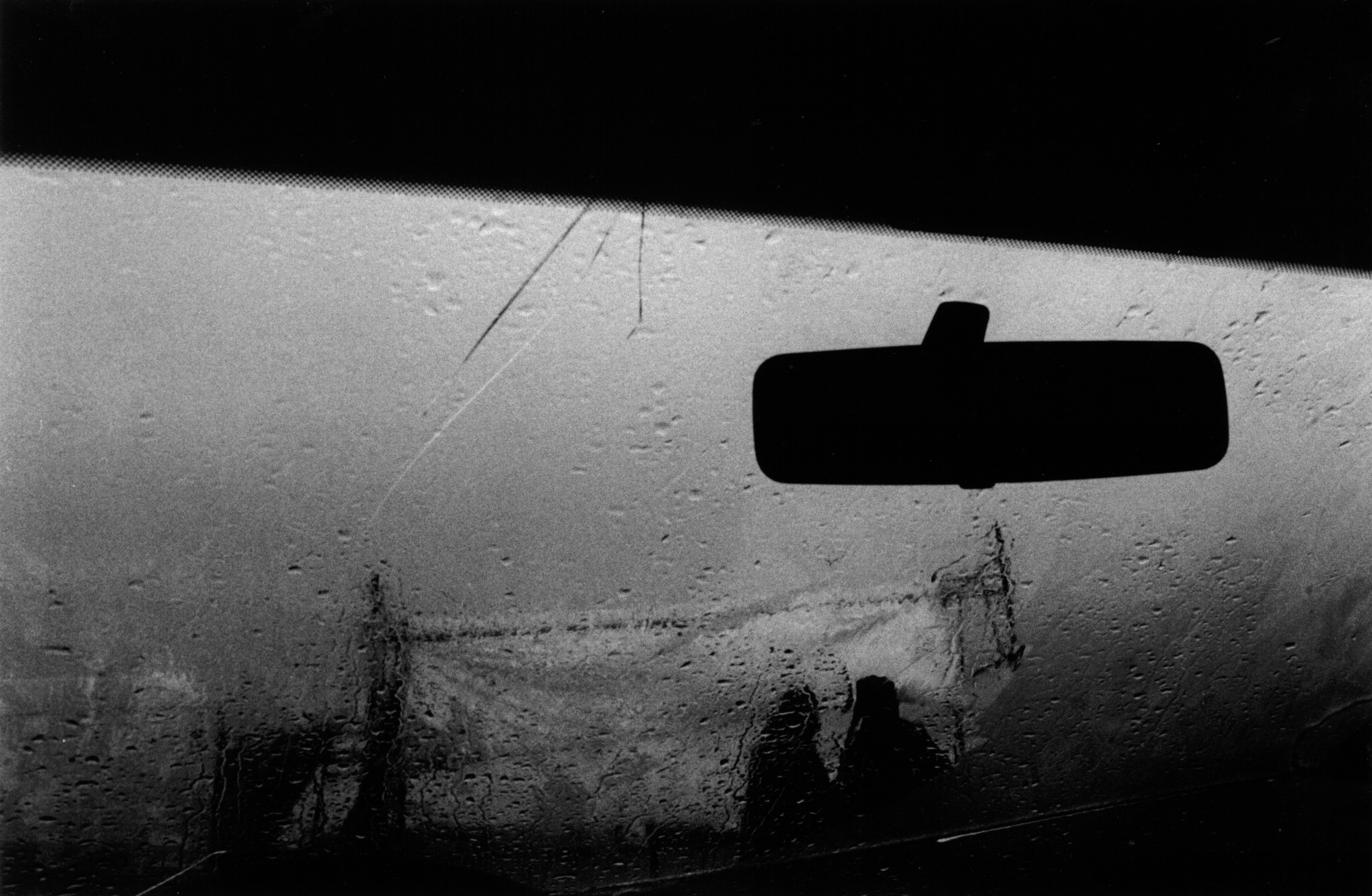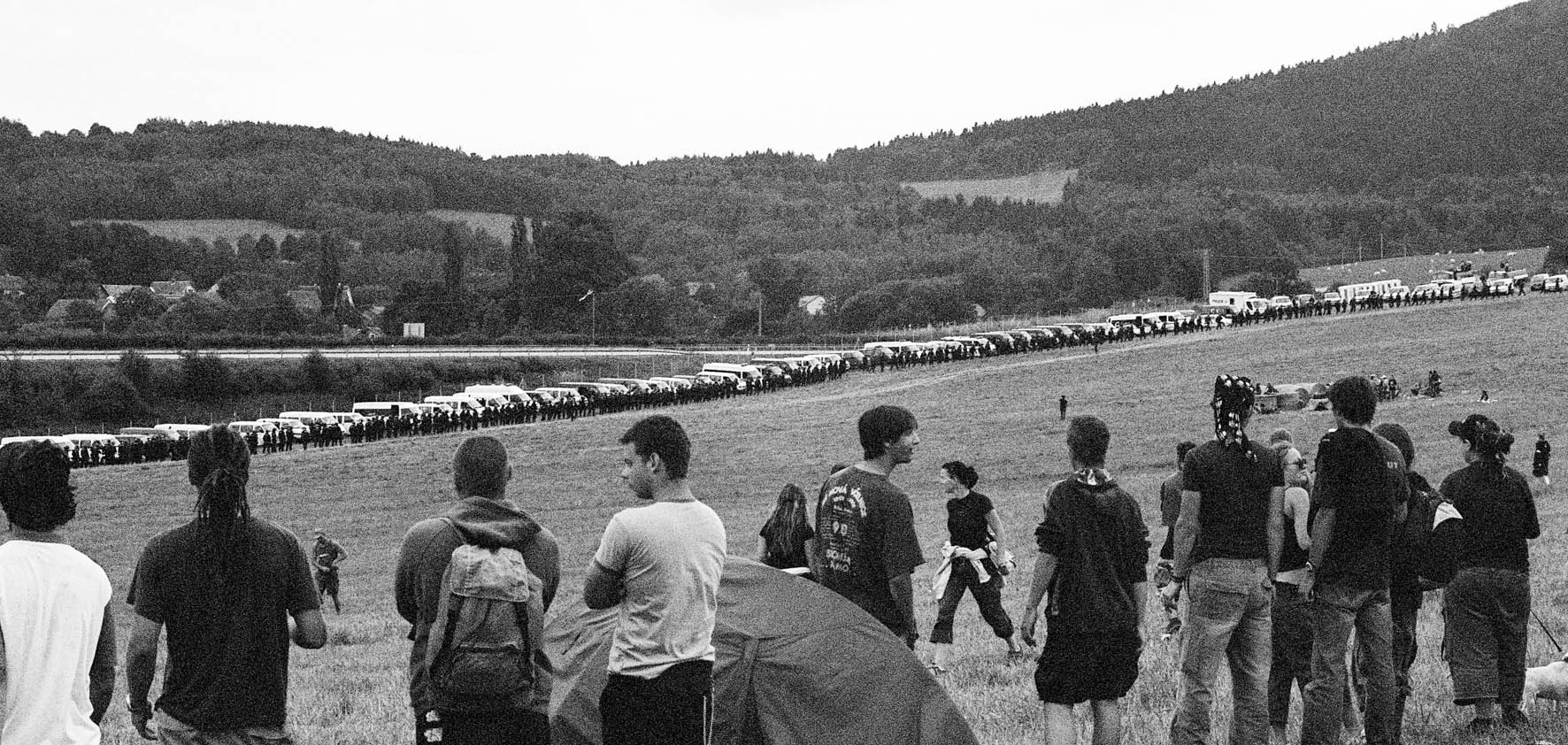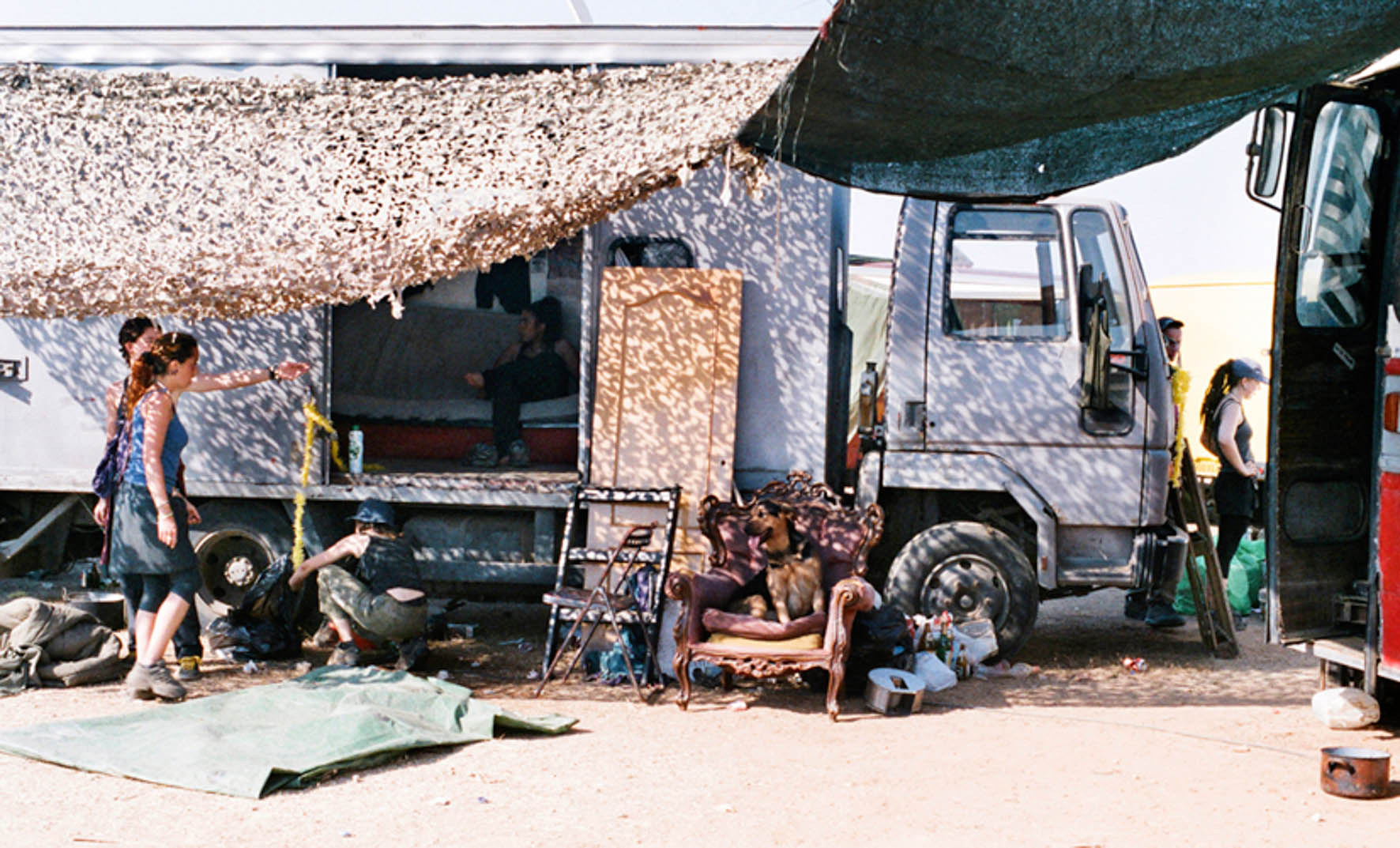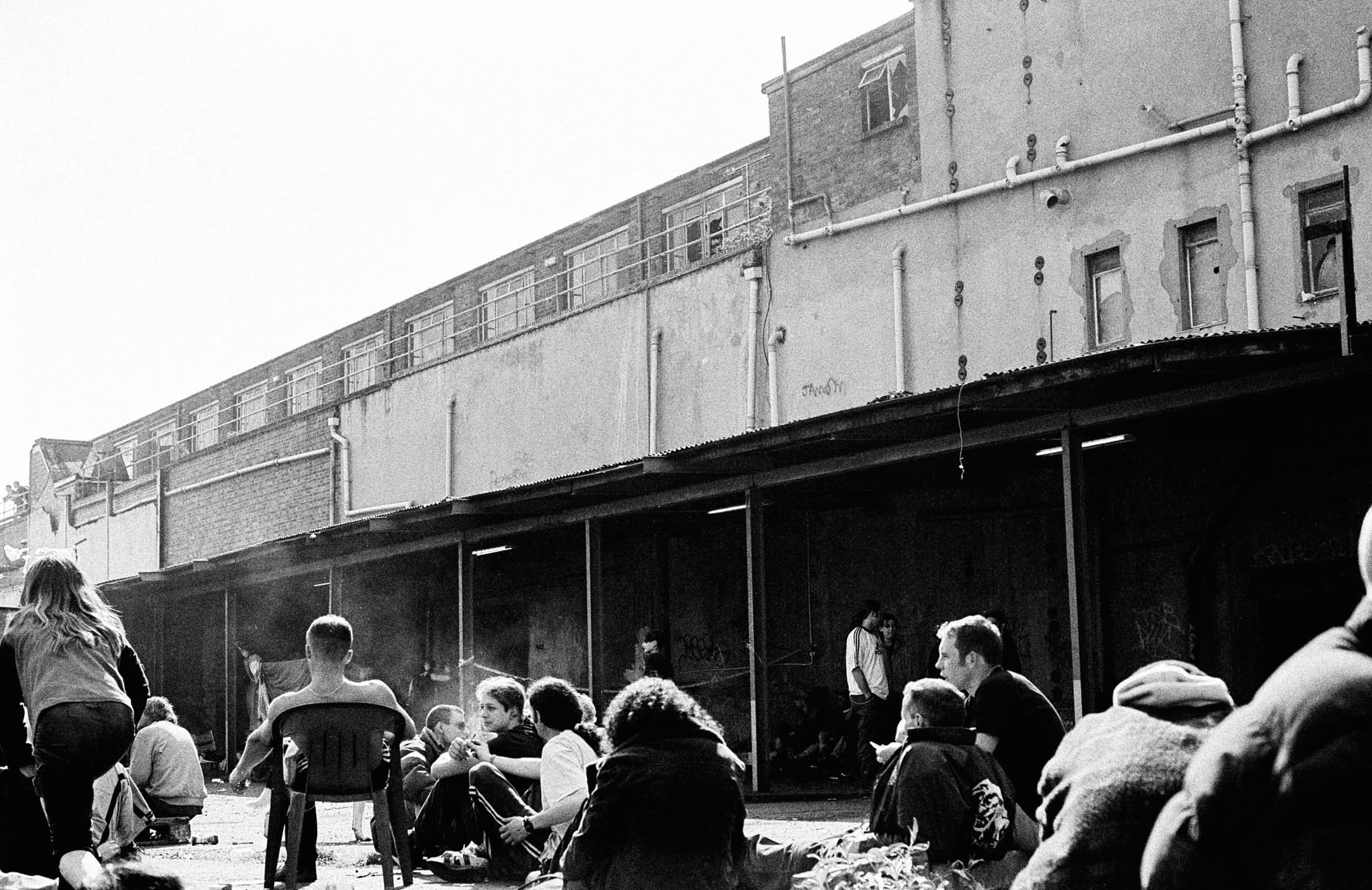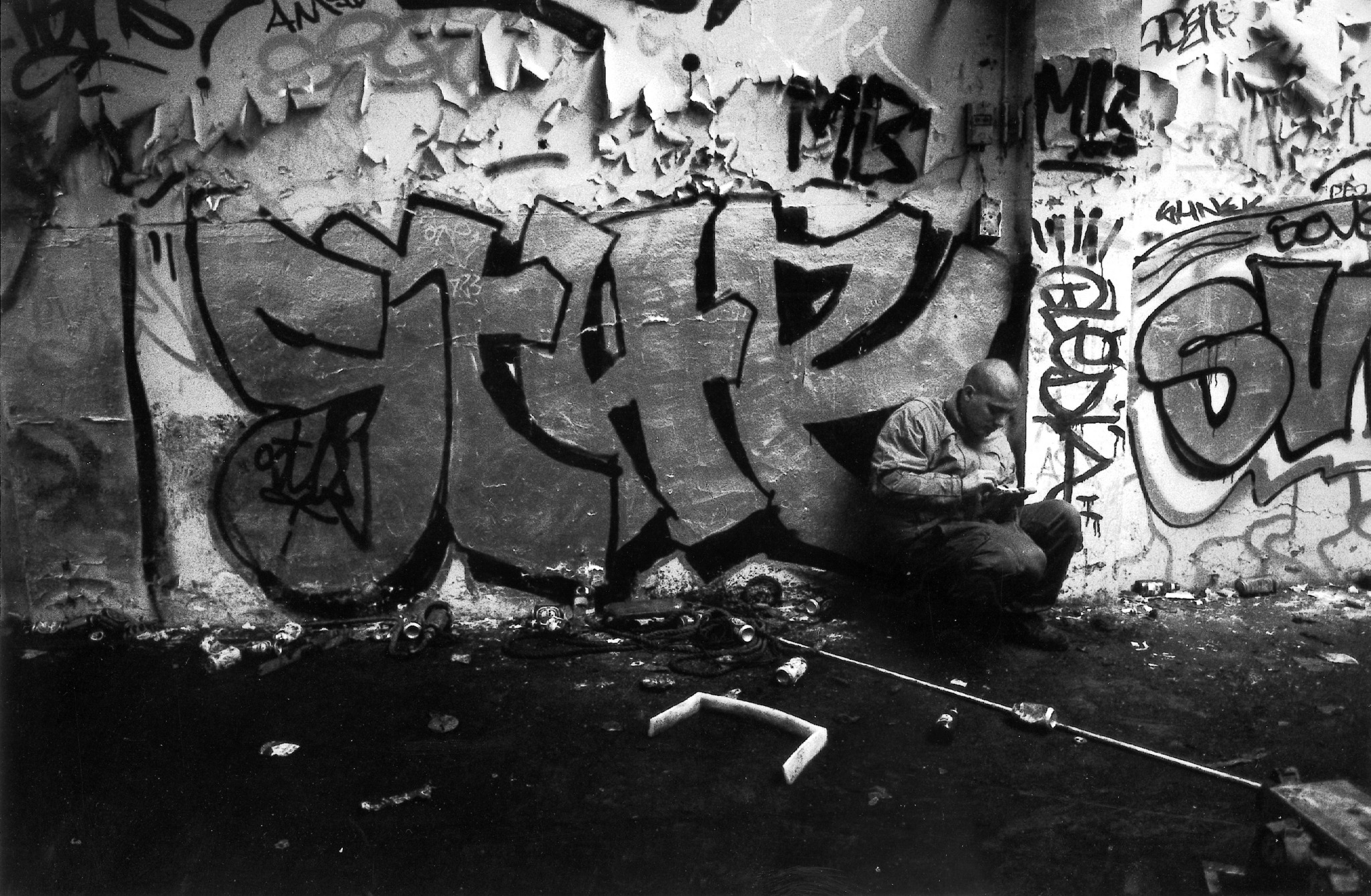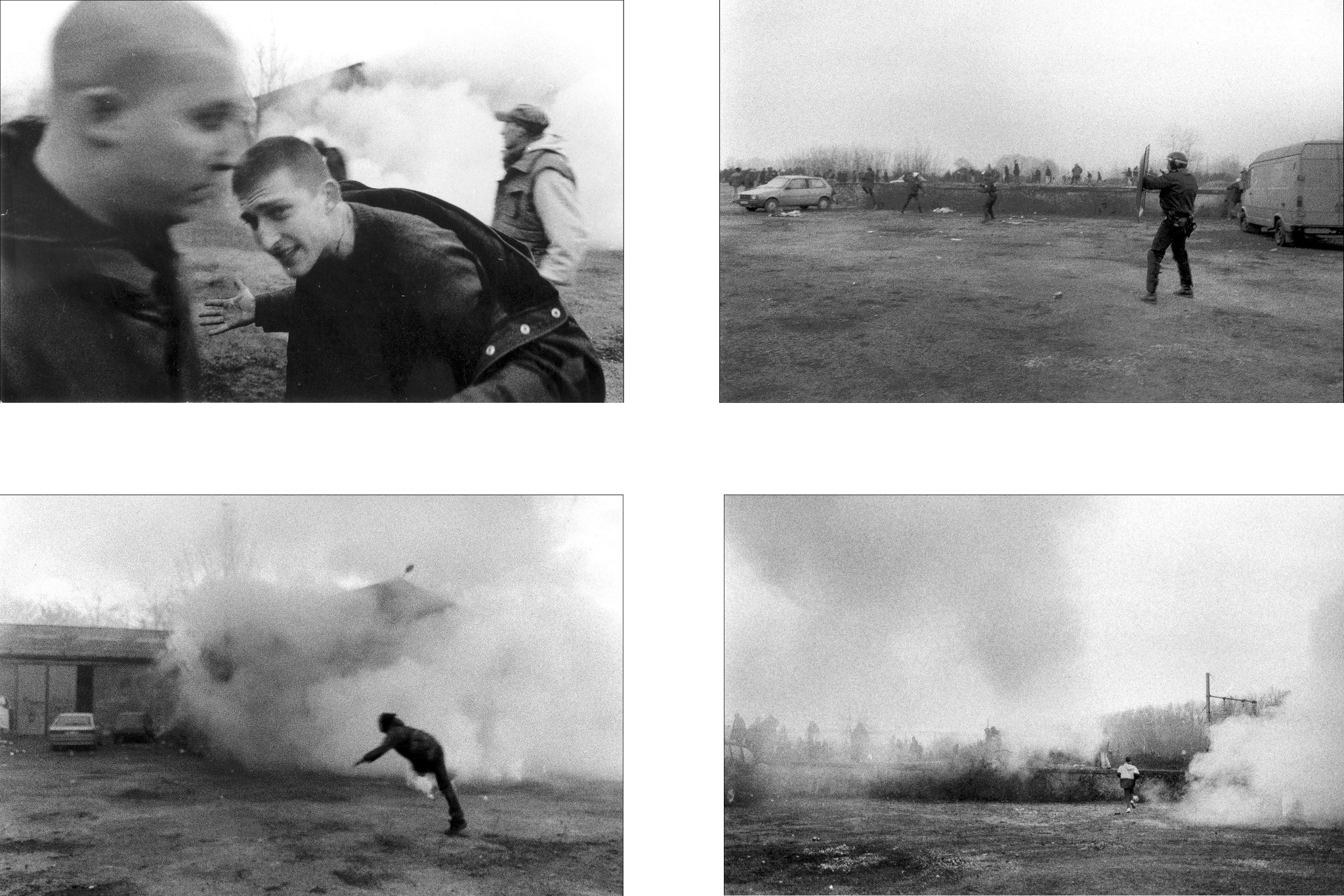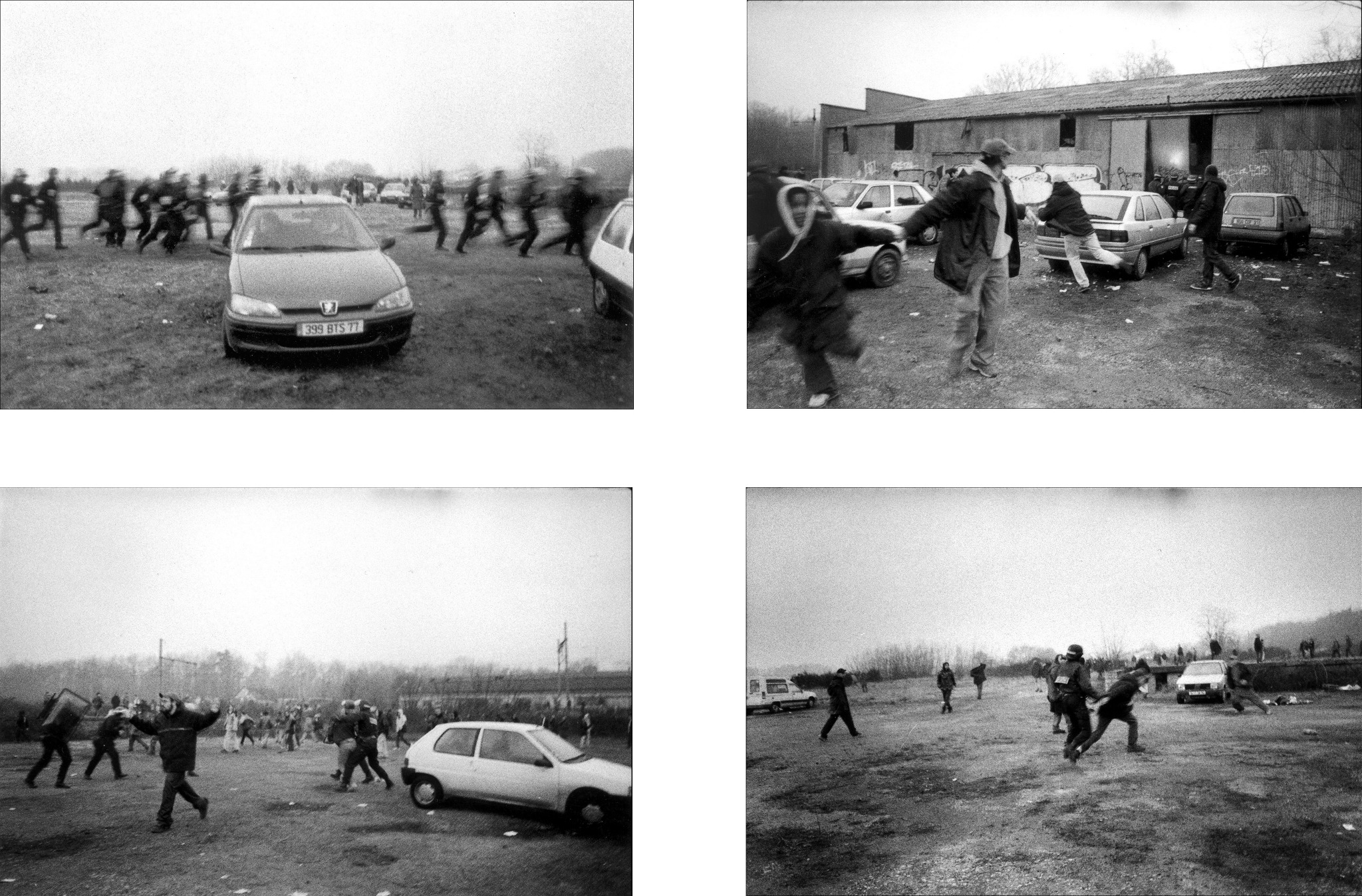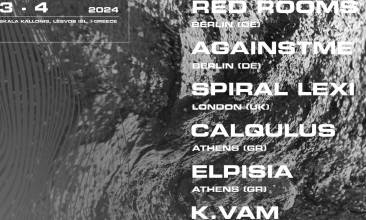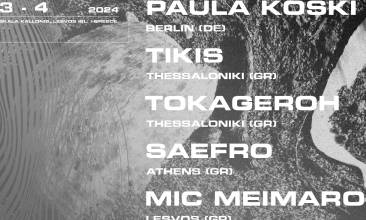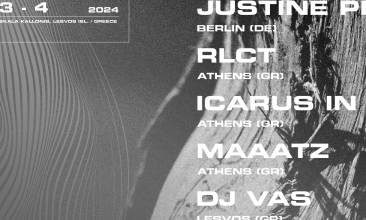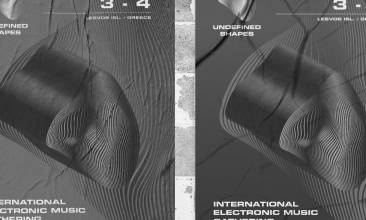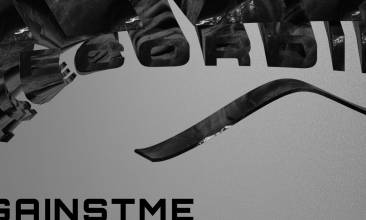Research: The first gatherings of electronic music lovers, Teknivals
The rise of amplifiers, sequencers, and mixing synthesizers since 1980, as well as computers and digital audio workstations gave space for new kind of festivals dedicated to electronic music like Teknivals.
With the advent of new technologies in the 1960s, electronic genres such as electronic rock, electronic jazz, disco, computer music, synthpop, psychedelic rock and ambient music followed, with large free festivals showcasing the sounds into the 1970s.
Free festivals were a combination of music, arts and cultural activities, for which often no admission is charged, but involvement is preferred. They are identifiable by being multi-day events connected by a camping community without centralized control. The pioneering free festival movement started in the UK in the 1970s.
The rise of amplifiers, sequencers, and mixing synthesizers since 1980, as well as computers and digital audio workstations gave space for new kind of festivals dedicated to electronic music like Teknivals.
Teknivals (the word is a portmanteau of the words tekno and festival) are large free parties which take place worldwide. They take place most often in Europe and are often illegal under various national or regional laws. The parties often take place in venues far away from residential areas such as squatted warehouses, empty military bases, beaches, forests or fields. The teknival phenomenon is a grassroots movement which has grown out of the rave, UK traveller and Burning Man scenes and spawned an entire subculture. Summer is the usual season for teknivals.
Teknivals are a larger scale version of free parties and emerged in the early 1990s, when acid house parties and travellers in Great Britain became the target of political repression, culminating in the Criminal Justice and Public Order Act 1994. Section 63 of the Act gave the police new powers to close down illegal parties.
Sound systems then started travelling to countries in Europe where laws were less restrictive and the authorities were uncertain how to stop the festivals. One of the most famous of these sound systems was Spiral Tribe, which was at the forefront of the free party movement in Europe.
Other systems were called Bedlam, Circus Normal, Circus Warp and Vox Populi. Desert Storm sound system organised teknivals in France and Spain and brought raves to war-torn Sarajevo, Bosnia, in 1996. At one party the front-line was 10 kilometres away and they were asked to turn off their lights in case they attracted enemy fire.
While some teknivals are one-off events, most take place every year on or around the same date; the biggest, such as the ones in France or Czech Republic, can attract up to 80,000 visitors.
Just as the word 'teknival' was formed by merging the words 'tekno' and 'festival', teknivals in different countries are referred to by abbreviated names, such as the aforementioned Czechtek, Frenchtek (North France) and also Poltek (Poland), Slovtek (Slovakia), Southtek (South Germany), Bulgariatek (Bulgaria), Rotek(Romania), Helltek (Greece), Dutchtek (Netherlands), Easttek (East Germany), U-Tek (Ukraine), Northtek (Canada) and Occitek (Occitania, South France). NorthTek was held on Crown Land in Ontario.
The word of mouth
Sound systems gather on the site and play varied types of electronic music. Along with each sound system come friends and travellers so most teknivals have a multicultural atmosphere. The parties can last for several days or even weeks. Teknivals are organised by the sound system community using underground methods such as word of mouth, answerphone messages, flyer (pamphlet) and internet discussion boards. Normally the flyer states that the party is an open invitation, thus any artist who turns up can play music. The emphasis is on a DIY ethic. As well as local sound systems, who might act as the hosts, larger sound systems can spend the summer travelling from one teknival to the next before returning to their home country for the winter.
French teknivals
As thousands of sound systems proliferated post-Spiral Tribe, France rapidly became the center of the teknival world. The May Day teknival at Fontainebleau near Paris was attracting 60-80,000 people by the late 1990s and, by 2004, as a now legitimate (but still non-commercial) event, up to 110,000 with over 200 sound systems. Eventual amendments to the public safety laws, the Loi sur la Securité Quotidienne, were passed in 2002 (known as the “Mariani Law” named after politician Thierry Mariani) in which free parties became linked with terrorism. Like the UK’s CJA, this effectively criminalized large free festivals and increased police powers to prevent these events. Legitimate teknivals, now dubbed “Sarkovals” after Nicolas Sarkozy (formerly the Minister of the Interior and President) would require permission from the Ministry. But while regulatory interventions have inaugurated the institutionalization and commercialization of a scene rooted in an autonomous vibe, the scene still thrives. Currently French law permits free parties with 500 people or under (subject to no noise complaints), and while Prefets generally refuse the applications now required for free parties with over 500 people, through constant negotiations with the Ministry of Interior since the August 2002 teknival on the French/Italian frontier at Col de l’Arches where sound crews set up rigs inside the Italian border facing the party goers in France,[8] the French Government have reluctantly allowed up to three large teknivals each year, even though they are technically unauthorized events. Teknivals also take place outside legal festivals such as Printemps de Bourges, Transmusicales in Rennes or Borealis in Montpellier.[9] Teknival negotiators deal directly with the Ministry of Interior, not the Ministry of Culture (with whom the commercial ventures seeking official status must deal) indicating that they are largely not cultural but security concerns.
UK teknivals
Recently in the United Kingdom teknivals have occurred again, despite huge police attention. In 2002 the tenth anniversary of the legendary Castlemorton rave was celebrated at Steart Beach in Somerset (there had also been a smaller teknival at the same location one year previously). In 2005 there was a UKtek in Wales and also a teknival known as Scumtek that happened twice in London. The first Scumtek was stopped by the police. However a further four events have taken place under the Scumtek name, three of which were squats with teknival rig numbers, and Scumtek 3 which took place in the centre of London Docklands in April 2010 outside and inside with 23 rigs in attendance. the UK Teks seem to be gathering pace in 2010 mainly due to the increasing pressure on legal festivals for policing costs and licensing restrictions.
2006 saw a teknival occur in Camelford, Cornwall. The event saw approximately 2,500 people attend, and was eventually clamped down on by the police three days after the event began. UKtek 2008 took place in a moorland quarry above Rochdale in North Manchester resulting in a significant police response, including attacking the ravers with batons. Dog units, mounted police, and police in full riot gear attended as seen on video available on YouTube. The UKTek in 2009 took place on a remote hillside near Brecon, Wales. 2010 saw UKTek arrive at Dale Aerodrome in Pembrokeshire, Wales again with approximately 2,500 attendees.
Czech teknivals
In the Czech Republic was mainly known teknivals: Czechtek - annually held from a small festival in 1994, which attracted up to 40,000 visitors, and Czarotek (held annually in spring). When Czechtek has been discontinued after event in Hradiště Military Area in 2006, more smaller open free parties are held through all the year. Czech travellers like Circus Alien, Strahov or Vosa continued to spread the vibe to various countries across Europe such as Bulgaria (from 2003), Romania, Spain, Poland or Ukraine (from 2006).
Source: Wikipedia
Photography sources: http://cargocollective.com & Molly Macindoe | Grab the photography book of Molly Macindoe (www.ditto-london.com/products/out-of-order-by-molly-macindoe-pre-order)
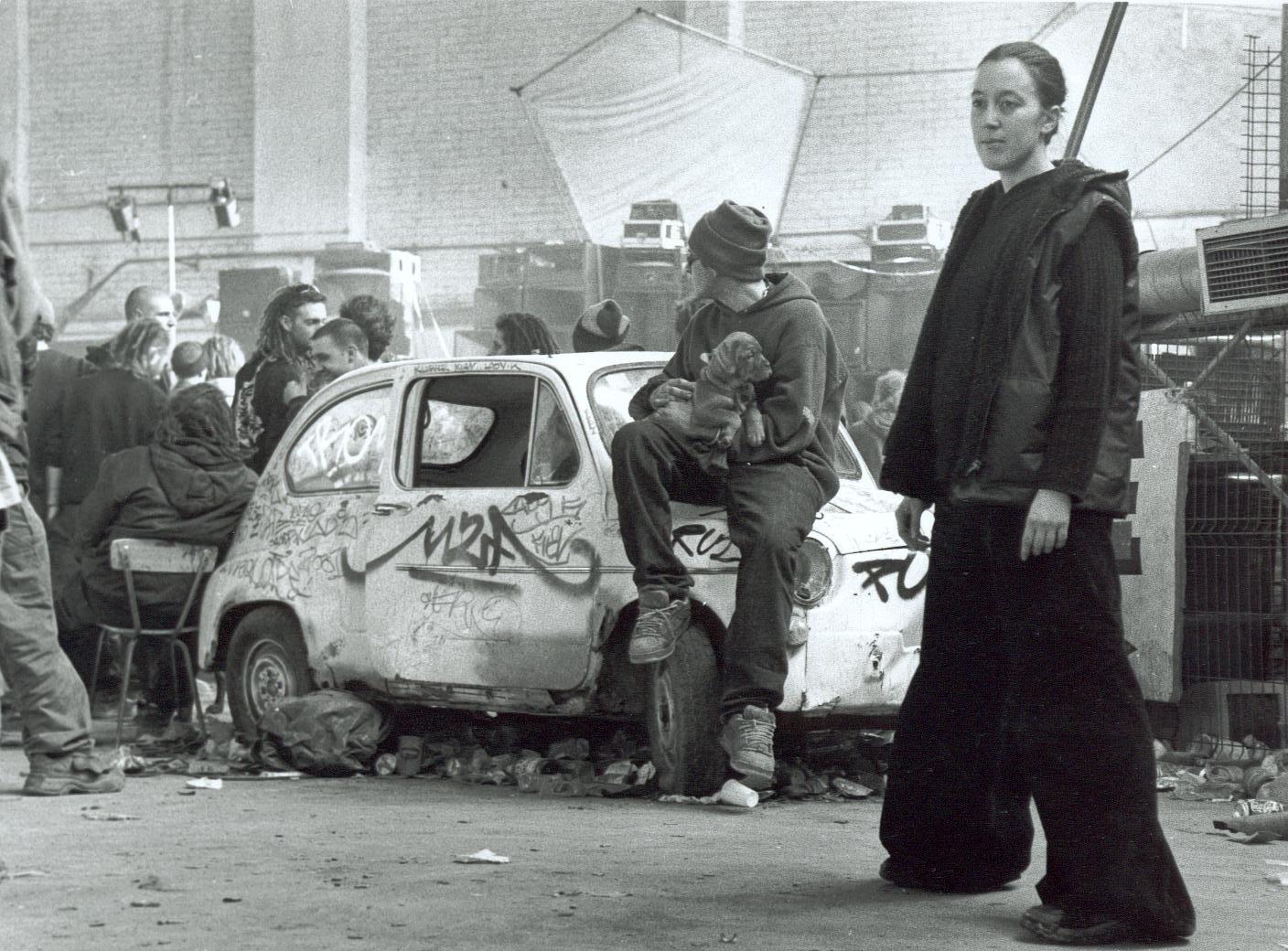
Με την άνοδο των νέων τεχνολογιών το 1960, διάφορα είδη μουσικής όπως το ηλεκτρονικό ροκ, ηλεκτρονική Jazz, disco, computer music, synthpop, psychedelic rock και ambient εμφανίστηκαν με αποτέλεσμα ένας μεγάλος αριθμός από τα λεγόμενα Free Festivals να περνούν στο προσκήνιο το 1970.
Τα Free Festivals ήταν ένας συνδυασμός μουσικής και τεχνών τα οποία λάμβαναν χώρα στην φύση. Η Αγγλία ήταν θα λέγαμε η γενέτειρα του Free Festival κινήματος, με εκδηλώσεις οι οποίες κρατούσαν πάνω από 1 ημέρες. Η διοργάνωση των Free Festivals ήταν αποτέλεσμα συλλογικής προσπάθειας ανθρώπων με αγάπη για τον "σύγχρονο ήχο" της εποχής.
Με την εμφάνιση των πρώτων ενισχυτών, των sequencer, των synthesizer, όπως και η χρήση των ηλεκτρονικών υπολογιστών γεννήθηκε ένα νέο κίνημα αντίστοιχο του κινήματος των Free Festival, τα Teknival.
Η λέξη Teknival είναι συνθετική και αποτελείται από την λέξη Tekno και Festival. Τα Teknival ήταν μεγάλα πάρτι τα οποία λάμβαναν χώρα σε διάφορα μέρη του πλανήτη και πιο συχνά σε περιοχές της Ευρώπης. Συνήθως ήταν παράνομα και διοργανώνονταν σε απομακρυσμένες περιοχές μέσα σε αποθήκες, υπόγεια, εγκαταλειμμένα κτίρια, παραλίες και δάση. Η πηγή του Teknival ήταν το κίνημα των φίλων της Rave μουσικής. Το Burning Man θα λέγαμε ότι αποτελεί χαρακτηριστικό παραδείγματα όπου μέχρι σήμερα συγκεντρώνει χιλιάδες κόσμου.
Τα Teknival ήταν μια μεγαλύτερη εκδοχή των free parties στις αρχές της δεκαετίας του 1990, μέχρις όταν τα acid house parties και ταξιδιώτες από την Μεγάλη Βρετανία γίναν στόχος πολιτικής καταστολής.
Στην συνέχεια συστήματα ήχου, άρχισαν να ταξιδεύουν σε χώρες της Ευρώπης όπου οι νόμοι ήταν λιγότερο περιοριστικοί και οι αρχές ήταν δύσκολο να τα σταματήσουν. Ένα από τα πιο διάσημα από αυτά τα συστήματα ήχου ήταν το Spiral Tribe, που ήταν στην πρώτη γραμμή του κινήματος Free Party στην Ευρώπη.
Άλλα συστήματα ήταν το Bedlam, Circus Normal, Circus Warp και Vox Populi. To ηχοσύστημα Desert Storm sound, οργάνωνε teknivals στη Γαλλία και την Ισπανία και έφερε τα rave party στο Σαράγεβο όταν γινόταν ο πόλεμος μεταξύ Σαράγεβο και Βοσνίας το 1996. Το party στο Σαράγεβο ήταν 10 χιλιόμετρα από την περιοχή, χωρίς φωτισμό για να μην τραβήξουν τα πυρά του στρατού. Τα Teknivals παρότι γίνονται μια φορά και δεν έχουν συνέχεια, συγκεντρώνουν μεγάλο πλήθος κόσμου. Στην Γαλλία και την Τσεχία αγγίζουν τους 80.000 επισκέπτες.
Από στόμα σε στόμα
Ηχητικά συστήματα συγκεντρώνονται στην περιοχή για να παίξουν ποικίλα είδη της ηλεκτρονικής μουσικής. Μαζί με κάθε ηχοσύστημα έρχονται φίλοι και επισκέπτες με αποτέλεσμα τα teknivals να έχουν μια πολυπολιτισμική ατμόσφαιρα. Το event μπορεί να διαρκέσει για αρκετές ημέρες ή ακόμη και εβδομάδες. Τα Teknivals οργανώθηκαν από την κοινότητα ανθρώπων που έχουν συστήματα ήχου, χρησιμοποιώντας πλάγιες μεθόδους προώθησης, όπως από στόμα σε στόμα, μηνύματα στον τηλεφωνητή, φυλλάδια και forum στο διαδίκτυο. Στο φυλλάδιο υπάρχει μια ανοιχτή πρόσκληση για αυτούς που θέλουν να παίξουν μουσική στο φεστιβάλ. Η έμφαση δίνεται στην DIY (Do it yourself) ηθική. Tα ηχοσυστήματα ταξιδεύουν από το ένα Teknival στο επόμενο συνήθως το καλοκαίρι και το χειμώνα επιστρέφουν στις χώρες τους.
Η Γαλλία, η Αγγλία και η Τσεχία θα λέγαμε είναι 3 χώρες οι οποίες φιλοξενούν τα μεγαλύτερα κινήματα Teknival.

